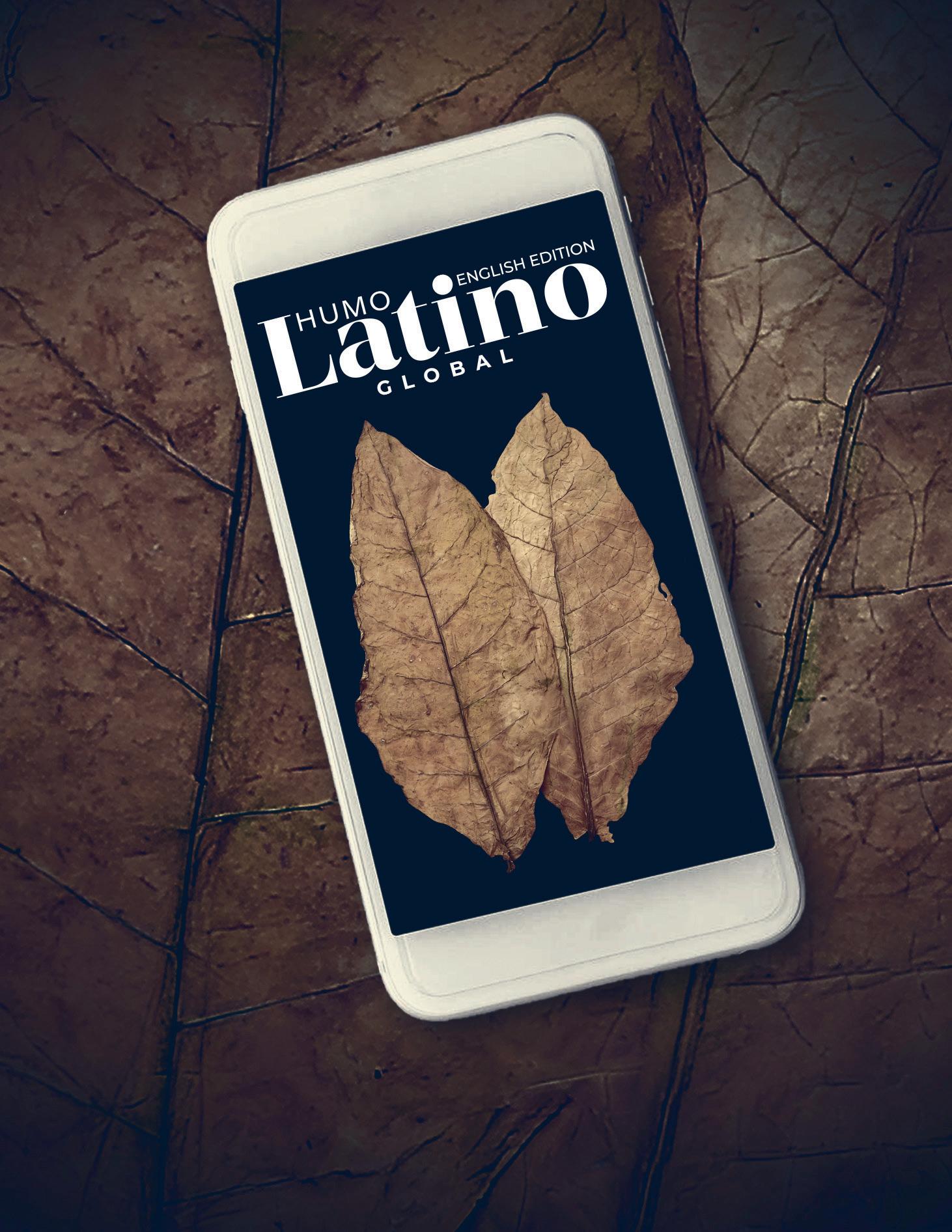INTERVIEW













* Hendrik Kelner, honorary president Ad-Vitam
The Association of Dominican Cigar Manufacturers (ProCigar) held its Annual General Assembly this Tuesday, April 30, in which Litto Gómez was elected President, and Ciro Cascella as Vice President of the new board who will lead this group for the next two years (2024-2026).
In the same framework, Hendrik Kelner was given an honorary recognition as Ad-Vitam President, “for his great dedication to the development of ProCigar, as well as for his 32 years of service to this industry,” according to the official statement.

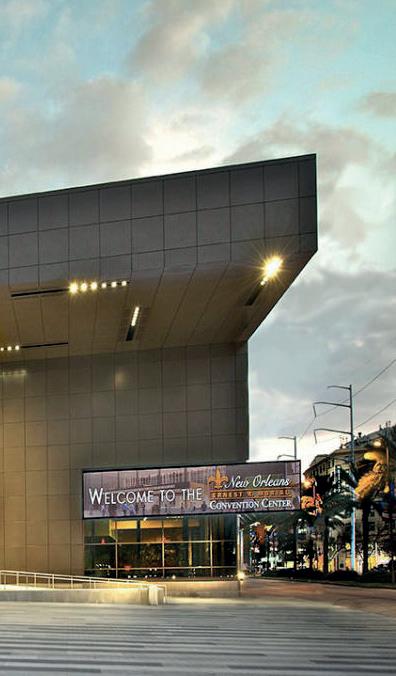
As industry-friendly cities with more permissive indoor smoking regulations, New Orleans and Las Vegas are set to be the sole venues for the Premium Cigar Association (PCA) trade show through 2030.
In a conference offered online, the executive director of the PCA, Scott Pearce, confirmed that the 2025 (april 11-14) and 2026 (april 17-20) editions of the trade show will be held at the facilities of the New Orleans Convention Center, which he described as one of the few spaces capable of accommodating an event as large as this, which gathers leaders from the global tobacco industry.
In this sense, he explained that the 2024 edition, held in Las Vegas, registered an influx of 2,200 attendees, 120 new retailers and close to 70 percent of continuous attendance compared to the 2023 edition.
In addition, he announced that by 2027, the event will return to Nevada, where it will seek to have a space in one of the different halls of a renovated Las Vegas Convention Center throughout 2027, 2028 and 2029. Since the change of dates for the beginning of the year makes it difficult to find days of availability at the Sands Expo at The Venetian hotel, where it had been taking place until 2024.
The PCA Deputy Executive Director, Joshua Habursky; the Director of Membership Development and Industry Relations, Lisa Sigler; the Director of Trade Show and Events, Lisa Cox; and the Director of Content, Antoine Reid, attended the conference.
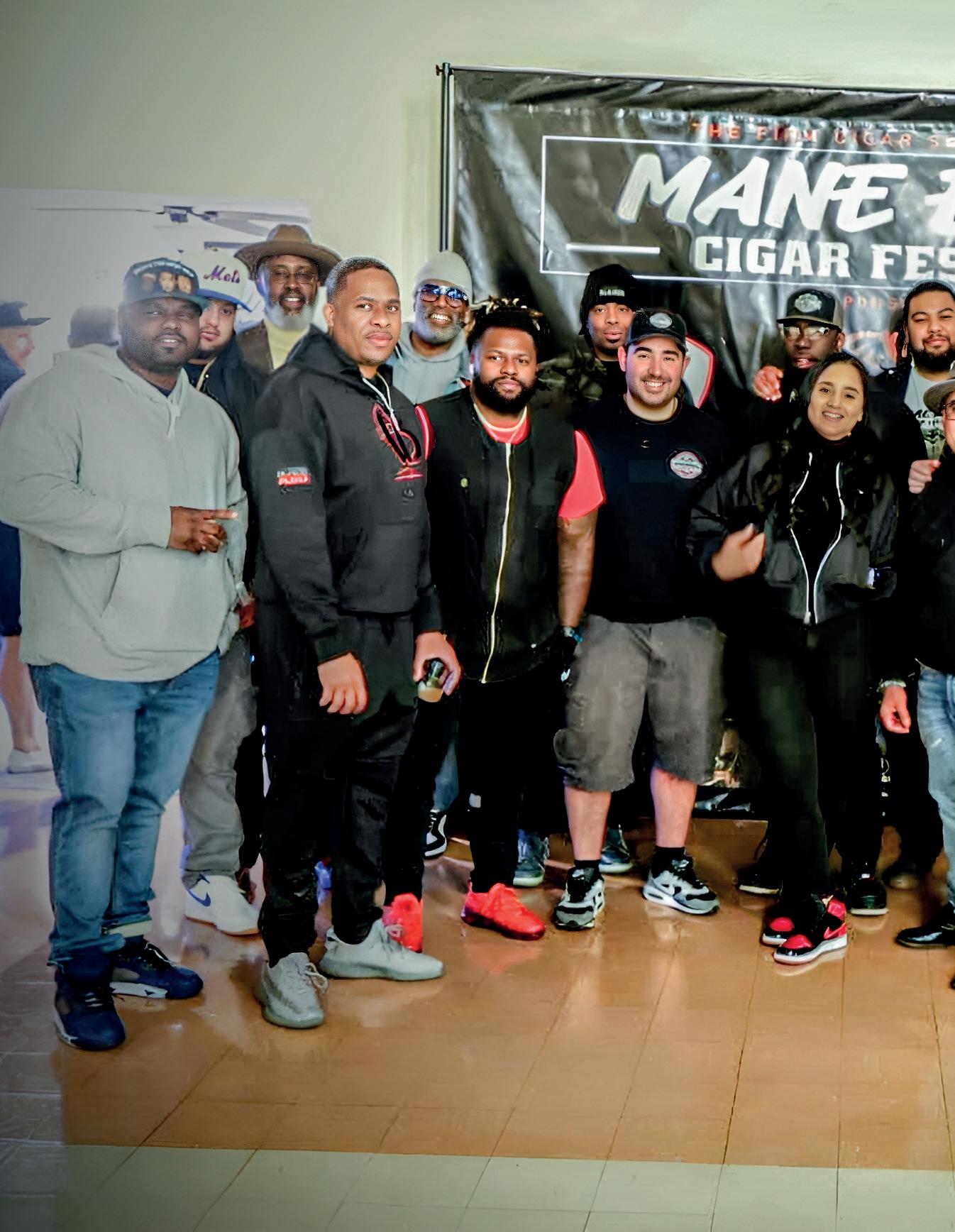
in New Jersey...
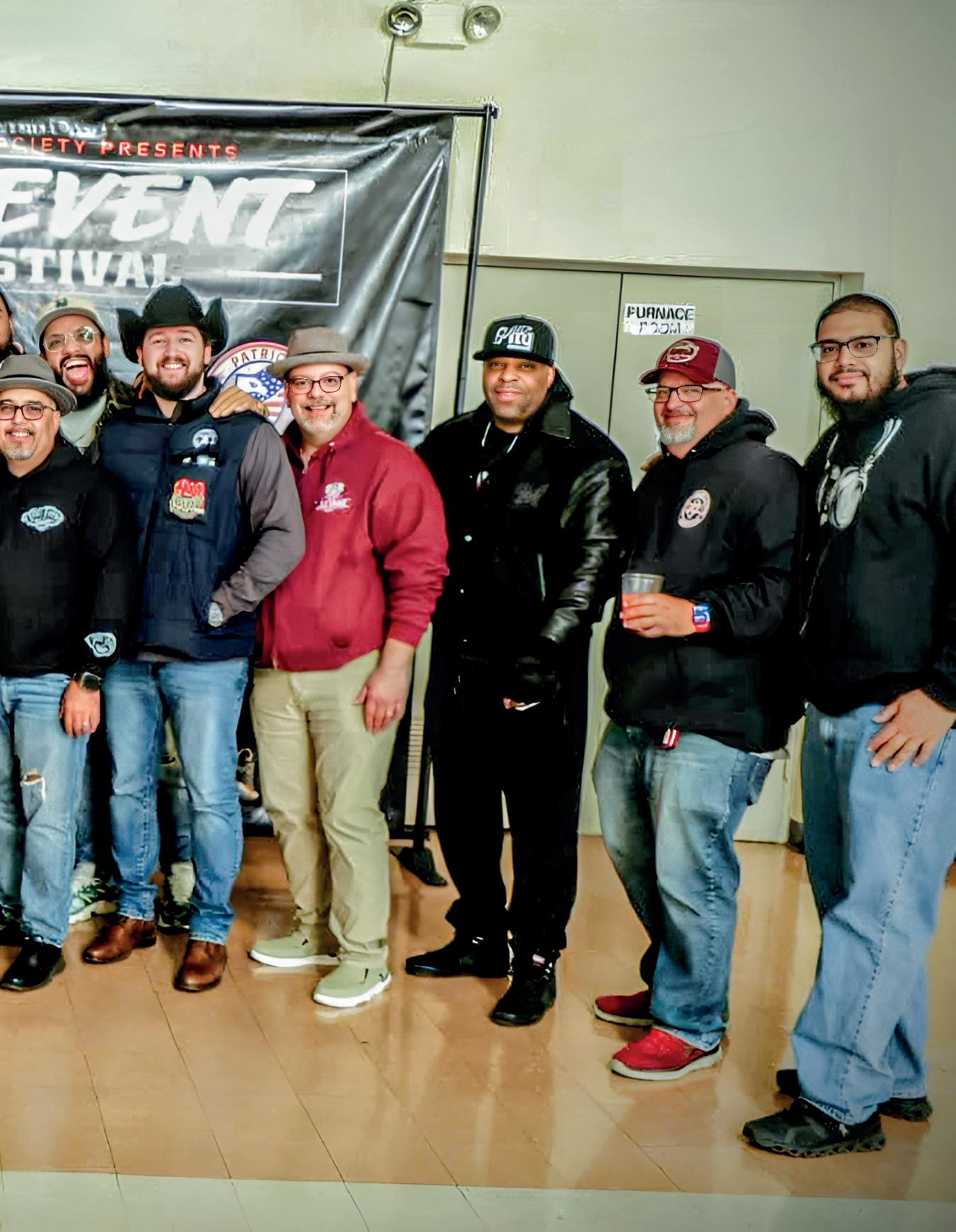
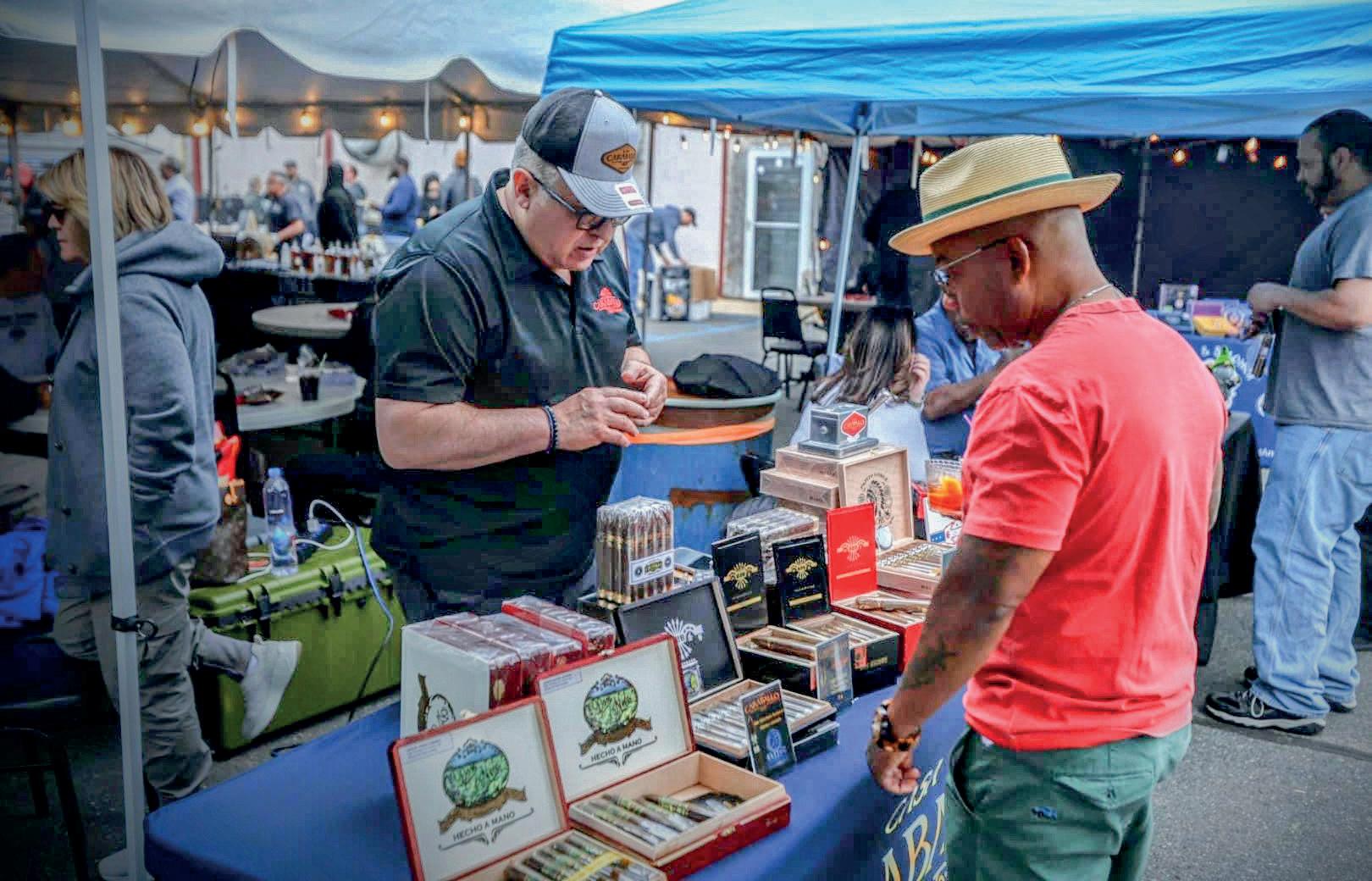

On the afternoon of Saturday, April 27th, Woodbridge, New Jersey, became the nerve center of tobacco industry in the United States, bringing together suppliers, manufacturers, aficionados and retailers of the sector in the third consecutive edition of the Mane Event Cigar Festival.
This celebration, under the direction of Raymond Gross, reaffirmed once again that smoking is an act of elegance and offered attendees an extensive open bar, live music, food, raffles, cigars and the official t-shirt of the event, as part of the welcome package.


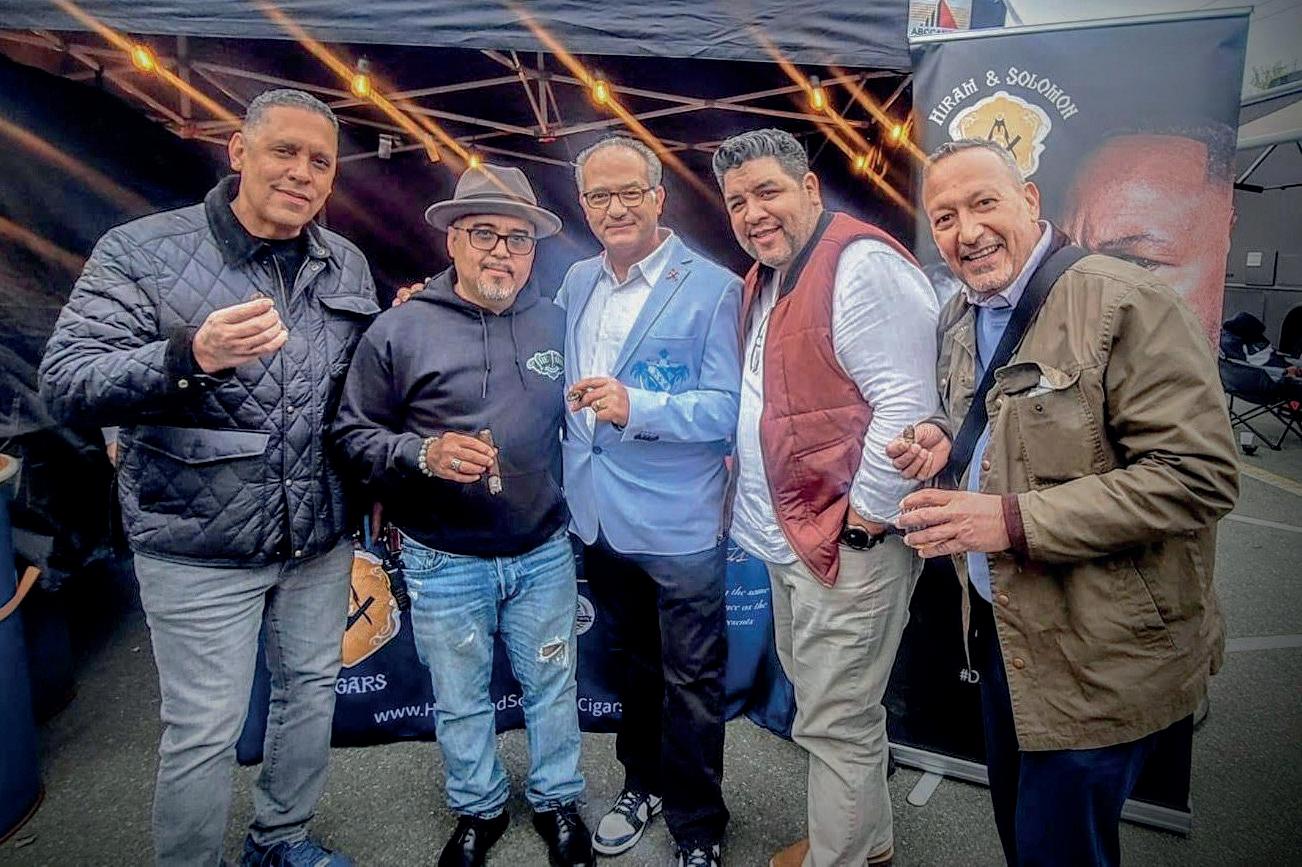
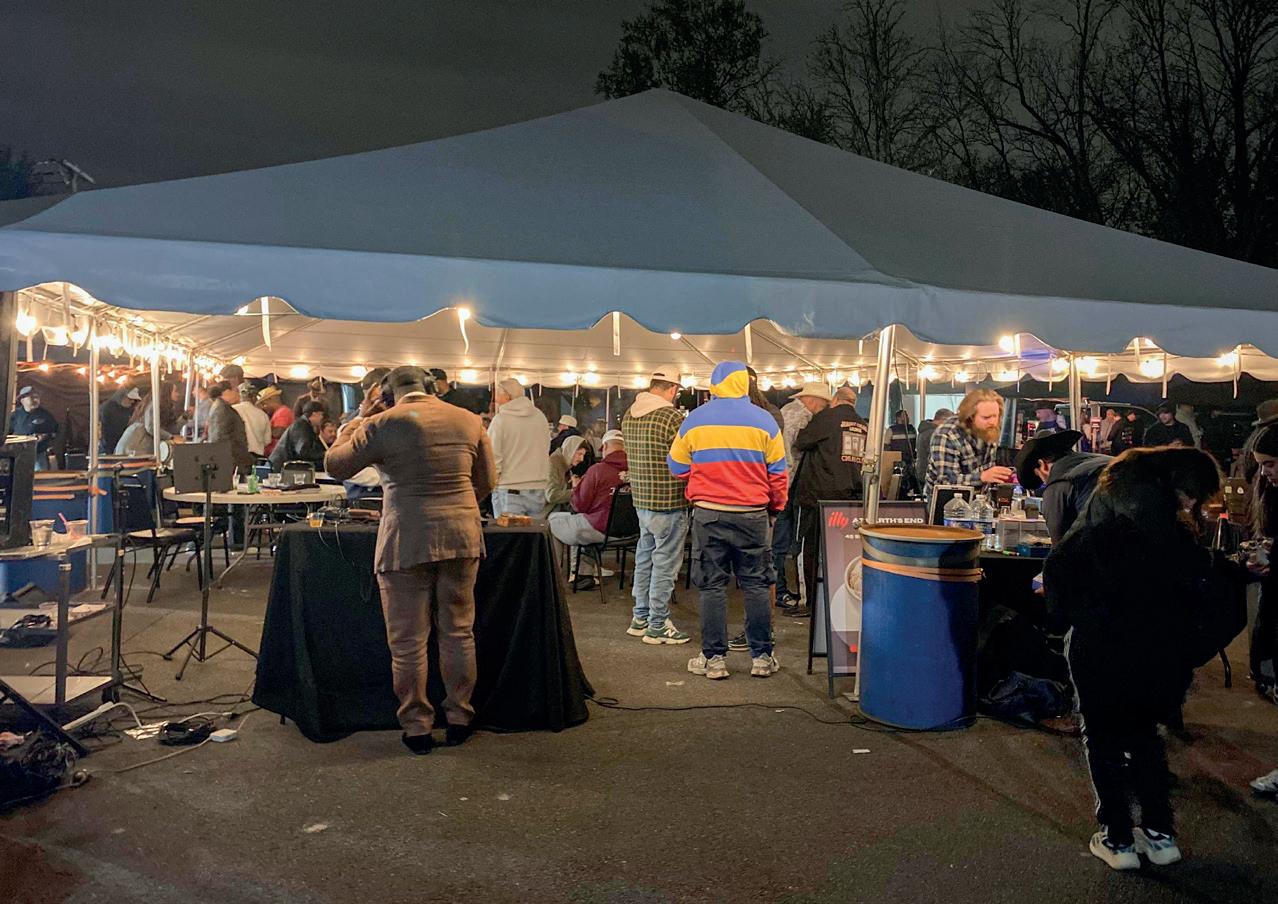
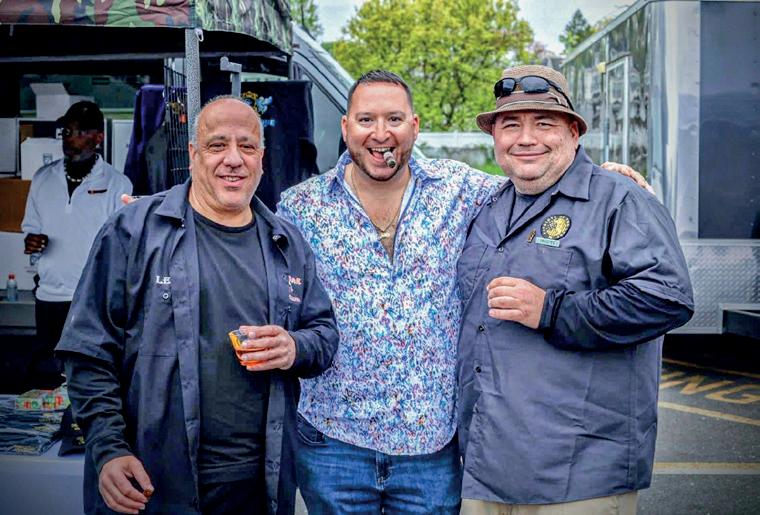
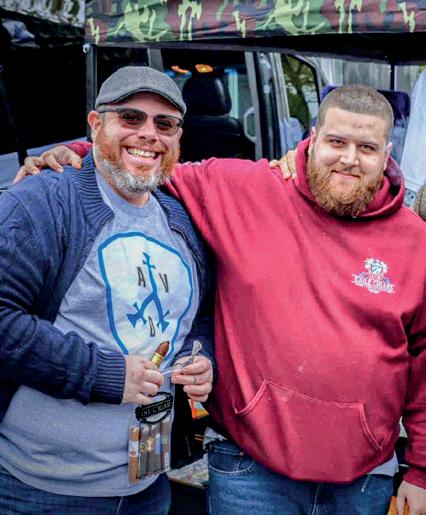



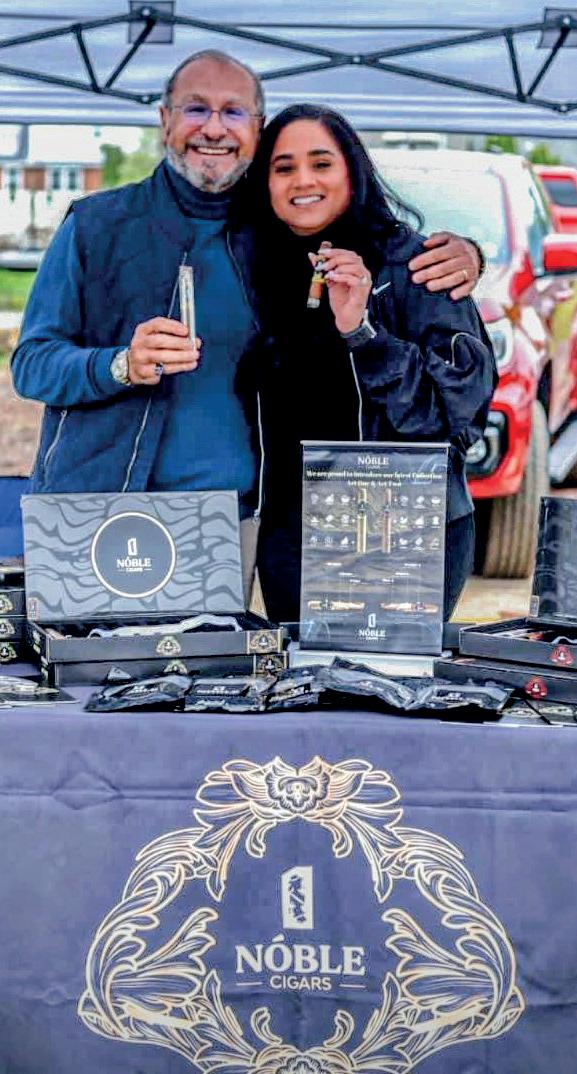
In addition, the afternoon was enjoyed among cigars, in the company of special guest Henderson Ventura, from ADVentura Cigars, along with other industry figures such as Elizabeth Santos, from Nóble Cigars; Fouad Kashouty from Hiram & Solomon Cigars, and representatives from Mane Street Cigars, Patriot Cigar Company, High End Cigars & Café, The Cigar Social Freehold and Exile Cigars, among other sponsoring brands.
The Mane Event Cigar Festival is an initiative of The Firm Cigar Society, a group made up of brothers and sisters of the leaf who, with elegance and class seek to spread the love for tobacco.
Fouad Kashouty, from Hiram & Solomon Cigars, and Elizabeth Santos, from Nóble Cigars.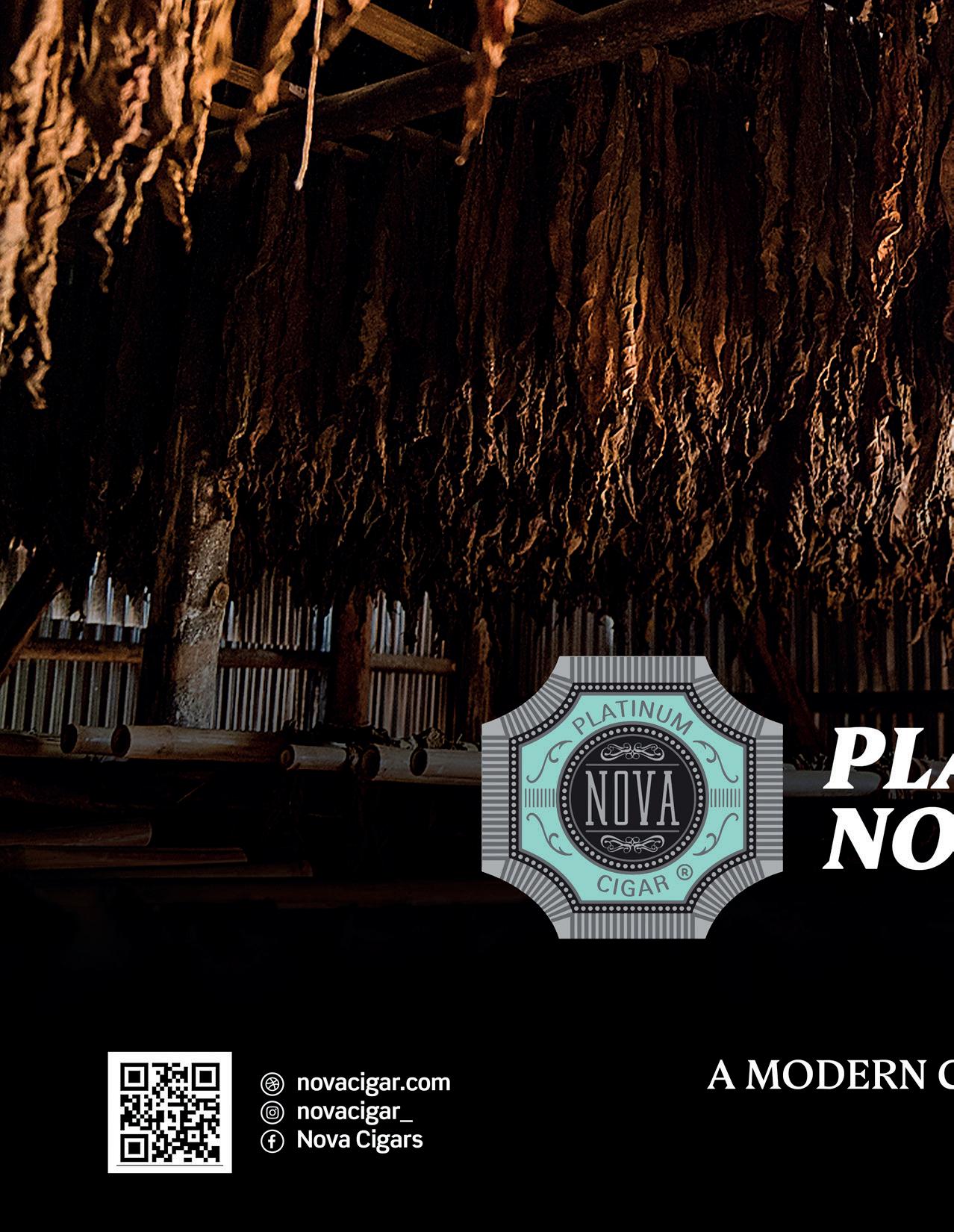
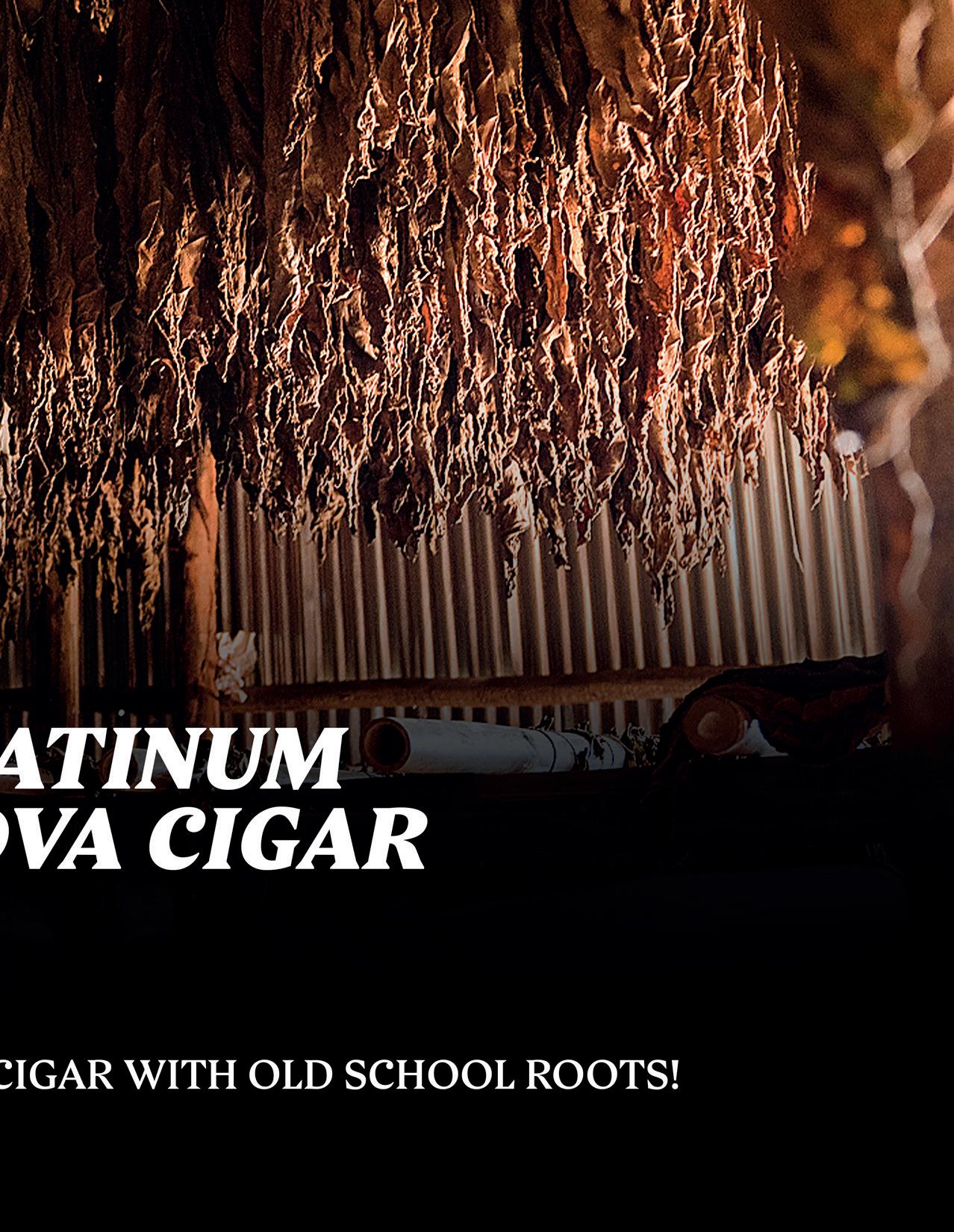

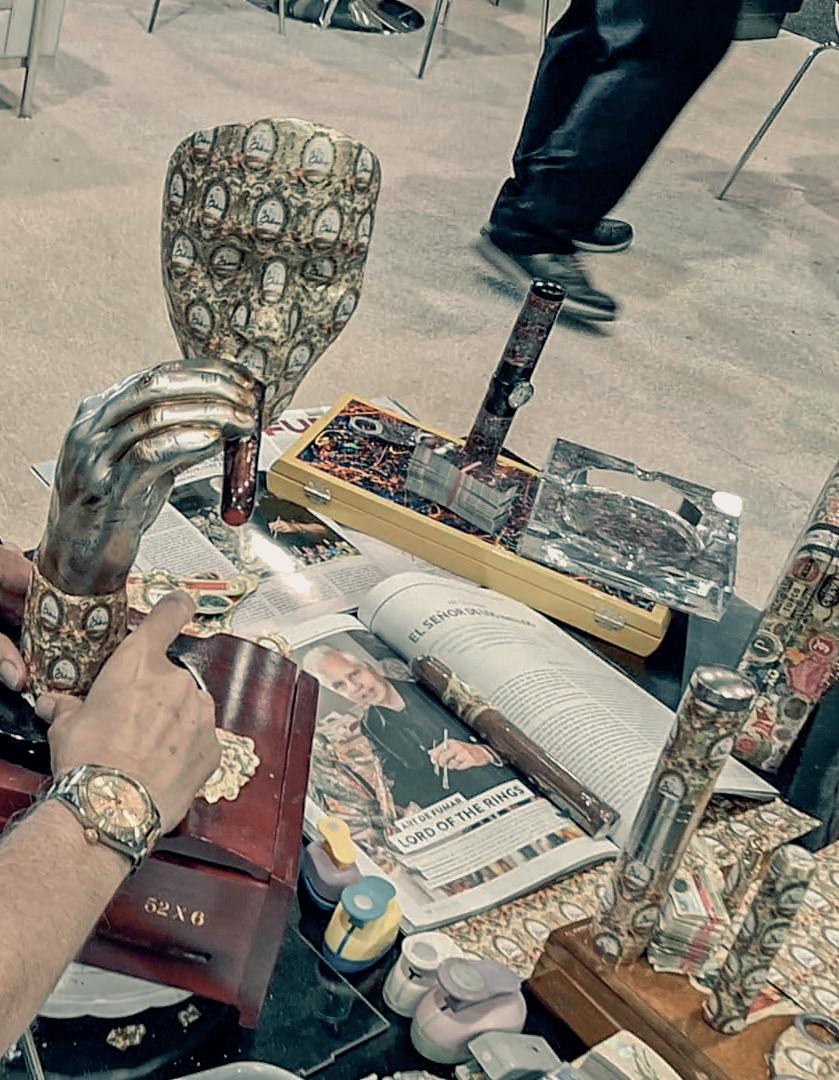
For the lawyer and plastic artist Robert Glick, smoking and enjoying a cigar is a passion, a feeling that he infuses into the creation of unique pieces ranging from ashtrays or lighters to shoes, musical instruments or humidors.
Through Art de Fumar, he shares his love for cigar culture with interventions carried out on various objects, from the union of hundreds of cigar bands that make up a kind of puzzle. “I’m always seeking to work on something new, something no one has seen or even thought of,” he says.
Among his extensive catalogue, Robert has produced various works that have allowed him to collaborate with the Carlito and the Fuente family foundation, from the Dominican Republic, to raise funds for various social activities.
During the 2024 edition of the Premium Cigar Association (PCA) trade show, the artist created a piece titled Cigar Man for La Galera Cigars in front of the public over two days. The artwork features a face and a hand holding a cigar, created using nearly 200 rings from this brand.
“It’s always an honor and a privilege to work on a piece of art live, as you have the opportunity to witness the amazement of those who observe it; they see how a common object transforms and gradually acquires a different meaning from its original appearance through the intervention process,” he explains.
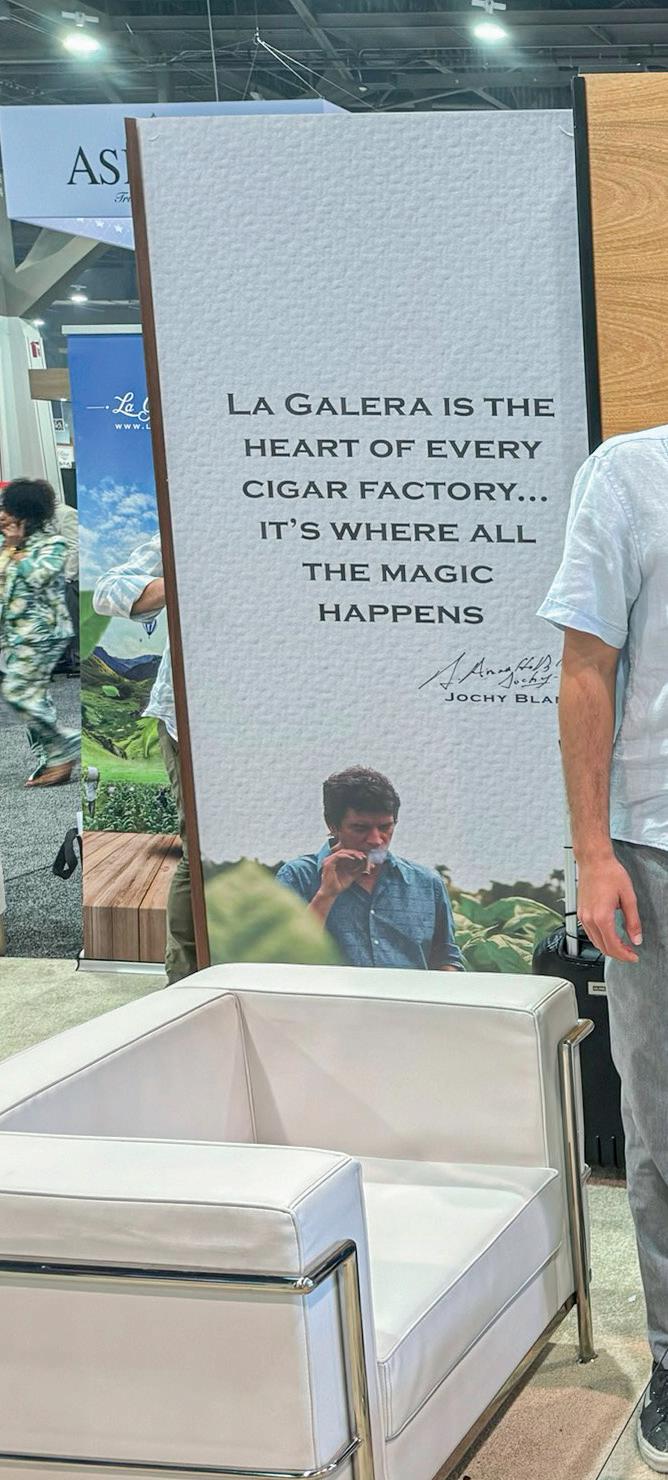
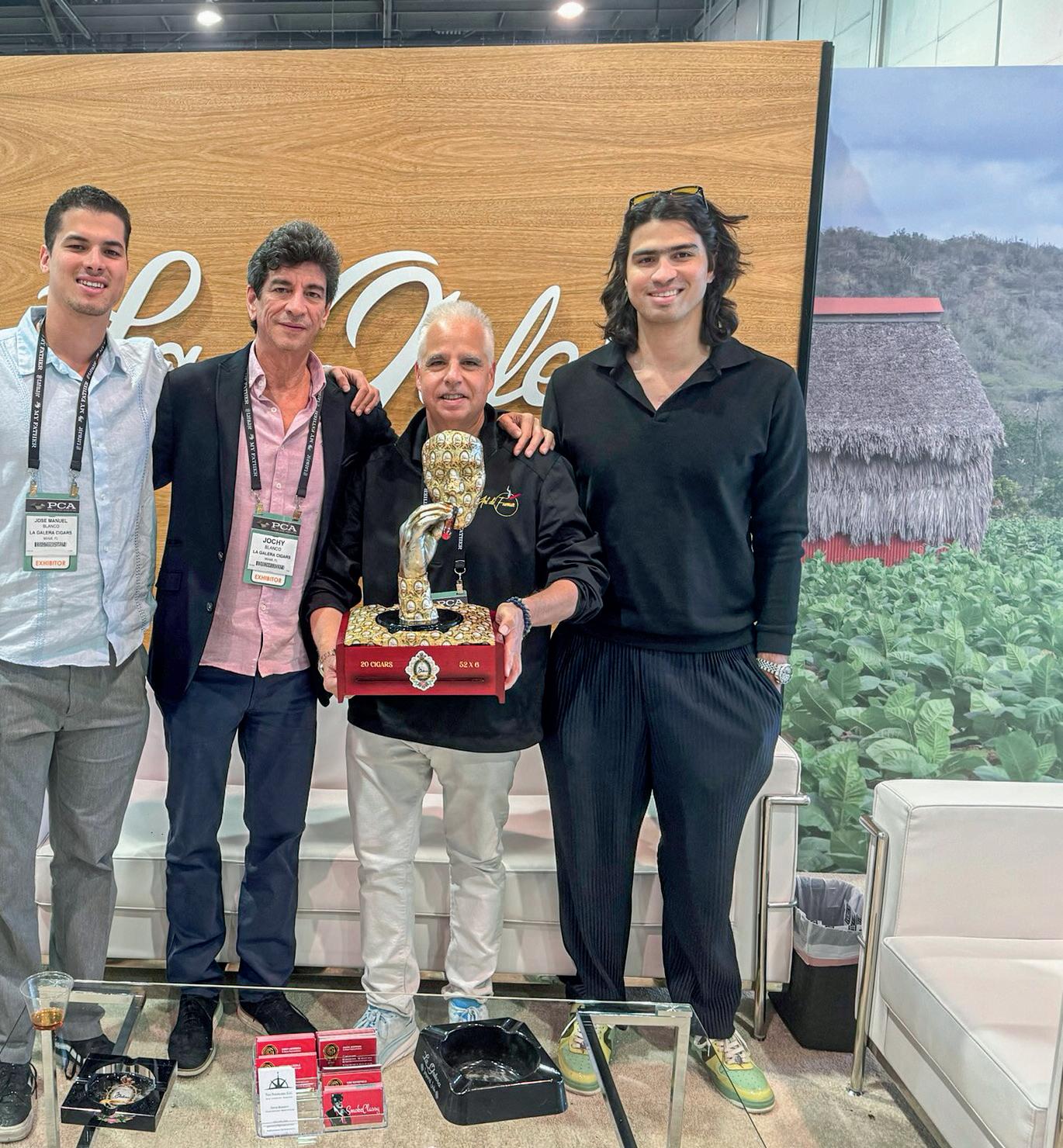


Robert, known as Art de Fumar, keeps his schedule open to collaborate with any brand, Cigar Lounge, or company interested in owning one of his pieces: ‘Life must be enriched with many friendships, relationships to love and be loved, as they are the greatest source of happiness in existence. This is the message I aim to spread,’ he says. Because where there is smoke, there is art...
For more information, to inquire about hiring, or to purchase pieces in stock, you can scan the QR code below or visit the @artdefumar account on Instagram.

→Height: 14 inches.
→Width: 6 inches.
→Depth: 5 inches.
→Rings used: 200
→Time of preparation: Two days.
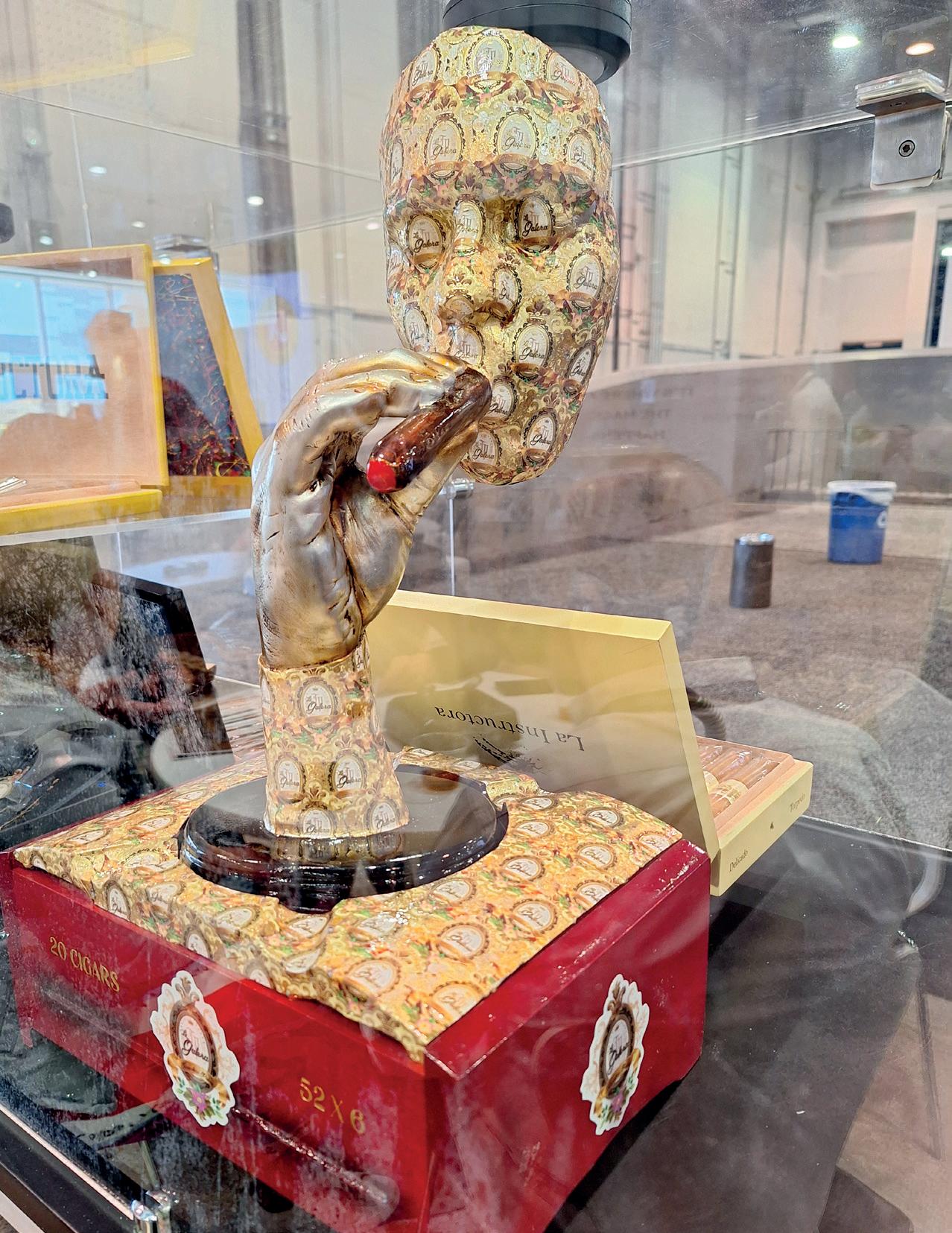



After the irreparable loss of José Gabriel Cruz Ayala, El Chan, La Resistencia remains in Puerto Rico under the leadership of his partner and wife, Liz Janice López de la Rosa; a woman with extensive academic training and certified in her country as a Tobacco Artisan, she is also passionate about this industry, willing to maintain and increase its legacy.
César
Salinas Chávez DirectorAlberto Arizmendi Editorial Director
José Antonio Ruiz Tierraseca
Michel Iván Texier Verdugo
Diego Urdaneta Diamantes
Nicolás Valenzuela Voss
Dominican Republic
Julio César Fuentes
Honduras
Patricia Pineda
Rolando Soto
Roberto Pérez Santiago Editorial Design
Raúl Melo Publisher
Moisés Licea Web Master
Yoshua Segovia Community Manager
Argentina
Gastón Banegas
Brazil
Rodrigo Emmanuel, Don Emmanuel
Colombia
Eduardo Márquez
Canada
Nicolás Valenzuela Voss
Chile
Francisco Reusser
Christopher Sáez
Michel Iván Texier Verdugo
Humo Latino Magazine reserves the right to reject unsolicited articles that contravene its thematic profile, as well as those that do not conform to its style standards.
The articles received will be approved in the first instance by members of the Editorial Board. We reserve the right to make changes or introduce modifications to the manuscripts, for the sake
© All Rights Reserved. Grupo Humo Latino Any reproduction, total or partial, of this contents, by any process, is prohibited.
global.humolatino.com issuu.com/humolatino
Cuba
José Camilo López Valls
Spain
Luciano Quadrini
José Antonio Ruiz Tierraseca
Fernando Sanfiel
United States
Blanca Suárez
Mexico
Aurelio Contreras
Manolo Santiago
Puerto Rico
José Luis Acosta
Dominican Republic
Francisco Matos Mancebo
Wendell Rodríguez
Venezuela
José Bello
Diego Urdaneta
of better reading comprehension, without this implying changing their content.
The authors are responsible for the content published under their signature. Humo Latino Magazine does not assume any responsibility for possible conflicts arising from the authorship of the works and publication of the graphic material that accompanies them.
@humolatinomagazine info@humolatino.com
Humo Latino Magazine entered the editorial market of the Tobacco World in October 2021, putting emerging and boutique brands of premium cigars at the center of our work, interest and covers, under the motto: “Tobacco is spoken and written in Spanish”.
We chose this approach because over a decade ago, we ran a tobacco shop where we exclusively worked with small cigar producers in Mexico, without considering the dominant brands in our small national market.
It was an enriching experience, as we learned about the quality, effort and stories behind many cigar makers who have worked hard for generations to produce cigars that –we believe–could compete in the national and international market... if they had the necessary resources, appropriate support, and advertising.
The editorial policy of Humo Latino Magazine was shaped by these experiences, and also set us apart from most specialized publications by the use of Spanish: the language spoken in the main tobacco and premium cigar producing countries, such as the Dominican Republic. Nicaragua, Cuba, Honduras, Mexico and Ecuador, also thinking about the large Latin public around the world.
By featuring covers and inside page articles about producers little known in the international market, we decided to follow an uphill path and position the current Grupo Humo Latino and its media, thanks to a journalistic task that privileges Story Telling –in different genres–, to make emerging and boutique brands visible.
During our first coverage of the Premium Cigar Association (PCA) Trade Show at Las Vegas, in 2022, we formally introduced ourselves to one of the world’s most important markets: the United States, with an English edition of our free newspaper Humo Latino Journal. Since then, friends and aficionados who do not speak Spanish have asked us for a regular edition in this language, and more than one client requested the translation of their article, to disseminate it among their target audience.
We recognize that in a globalized world, English is a crucial tool for producers, especially small and medium-sized ones, to reach and establish themselves in a constantly expanding market. Therefore, we decided to explore this idea, which we shared with allies and industry professionals in different countries. After a couple of months, we successfully created the electronic magazine we present to you today: Humo Latino Global.
We will publish this edition in English on the 15th of each month, presenting stories, reviews and content under the same editorial line, spirit and mission of its predecessor, Humo Latino Magazine, which we will maintain in Spanish, as usual. Other novelties are the creation of a website: global.humolatino.com –where the new magazine and additional information will be available–, along with its dedicated Facebook page.
We are undergoing an editorial renewal with which we seek to better serve our readers, clients and aficionados looking for new brands. Humo Latino Global is an important part of this process. We hope you to enjoy our content and join us in this new stage.

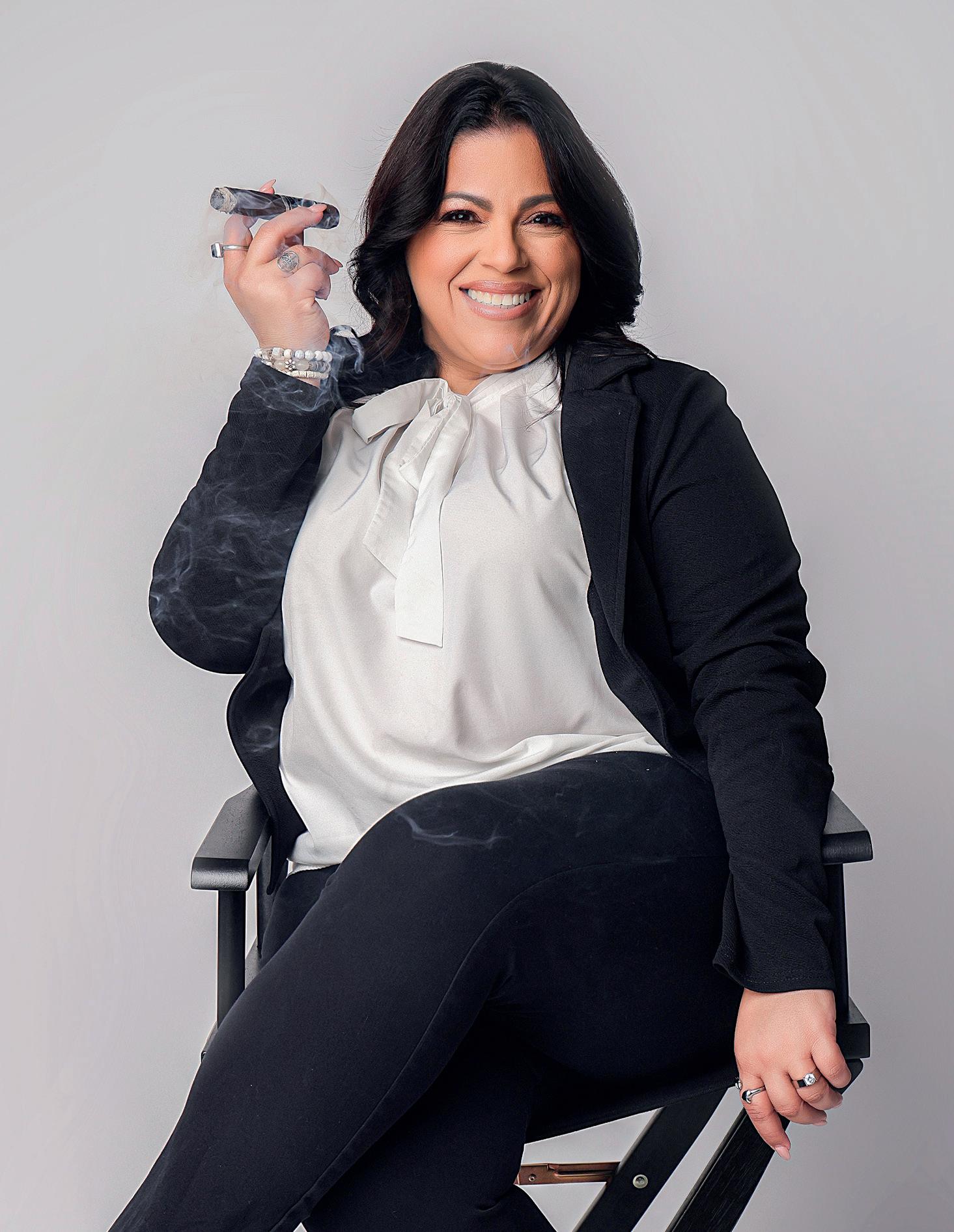
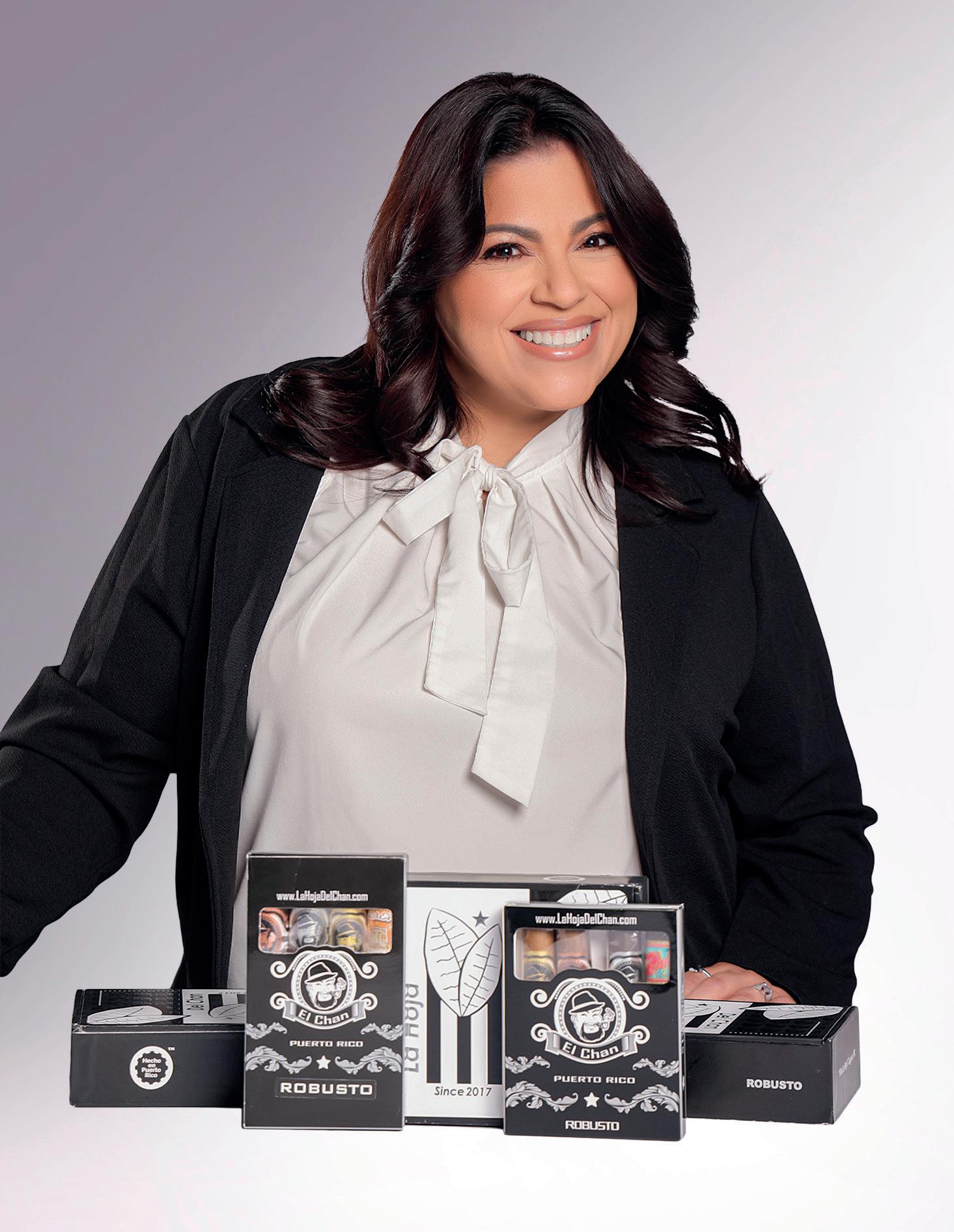

After the irreparable loss of José Gabriel Cruz Ayala, also known as El Chan, La Resistencia remains in Puerto Rico under the leadership of his partner and wife, Liz Janice López de la Rosa. A woman with extensive academic training, certified in her country as a Tobacco Artisan. She is also passionate about this industry, willing to maintain and increase its legacy.
She is not alone. She is accompanied by her children Gael, Daniela and Ámbar, her mother, her parents in-law, the cousin Jonathan and many other people who carry in their hands the teachings of El Chan, whose generosity allowed them to lay the foundations to continue with the work and carry the movement forward which he led, in search of the resurgence of the sector and tobacco on the island.
Seeking order at this stage, Liz Janice found a notebook in which, together with Gaby, she wrote down their plans, expectations and objectives for the future. Among them stood out not only attending, but also being exhibitors at the Premium Cigar Association (PCA) trade show; goal that they reached at the beginning of this year as the last activity in which she participated with her husband.
“(Gaby’s) biggest dream was to go to the PCA and we achieved it,” says Liz Janice, who explains that with this last trip to Las Vegas,
La Hoja del Chan became the first brand established and manufactured in Puerto Rico that, as such, has been presented at the most important tobacco event in the US market.
The next step is to obtain a totally Puerto Rican cigar, which is currently in process because the land is barely yielding the necessary fruits: “we have a cigar with some of our own leaf, but it is still complemented with raw materials from the Dominican Republic and Nicaragua.”
According to Liz Janice, Gaby’s plans remain intact, and among them is the production of a cigar with leaves produced in Caguas and Barceloneta, probably for 2027. “It is one of the things that was left in the inkpot, and now that “He’s gone, it’s my turn.”
These notes also preserve the brand’s blends –which they know very well because both she and Jonathan, Gaby’s cousin, have been involved in the manufacturing–, which ensures that the essence of El Chan will remain in the manufacturing of each cigar, the same way his face will remain in the core line image.
Regarding Galiz, this brand will continue as Liz Janice’s flagship. “Everything will remain the same, but instead of having him physically, we will carry him in spirit and memory,” she says.

Along with her grief, the last few weeks have stand for a lot of work for Liz Janice. Reaping the fruits of that fulfilled dream, it meets the commitments made at the PCA, to receive and fill orders, and responds to public requests. The fight for tobacco in Puerto Rico continues, because as she says, after Gaby’s departure, her nine-year-old son Gael asked her to “continue with dad’s business, and that gives me the strength to move forward,” she says.
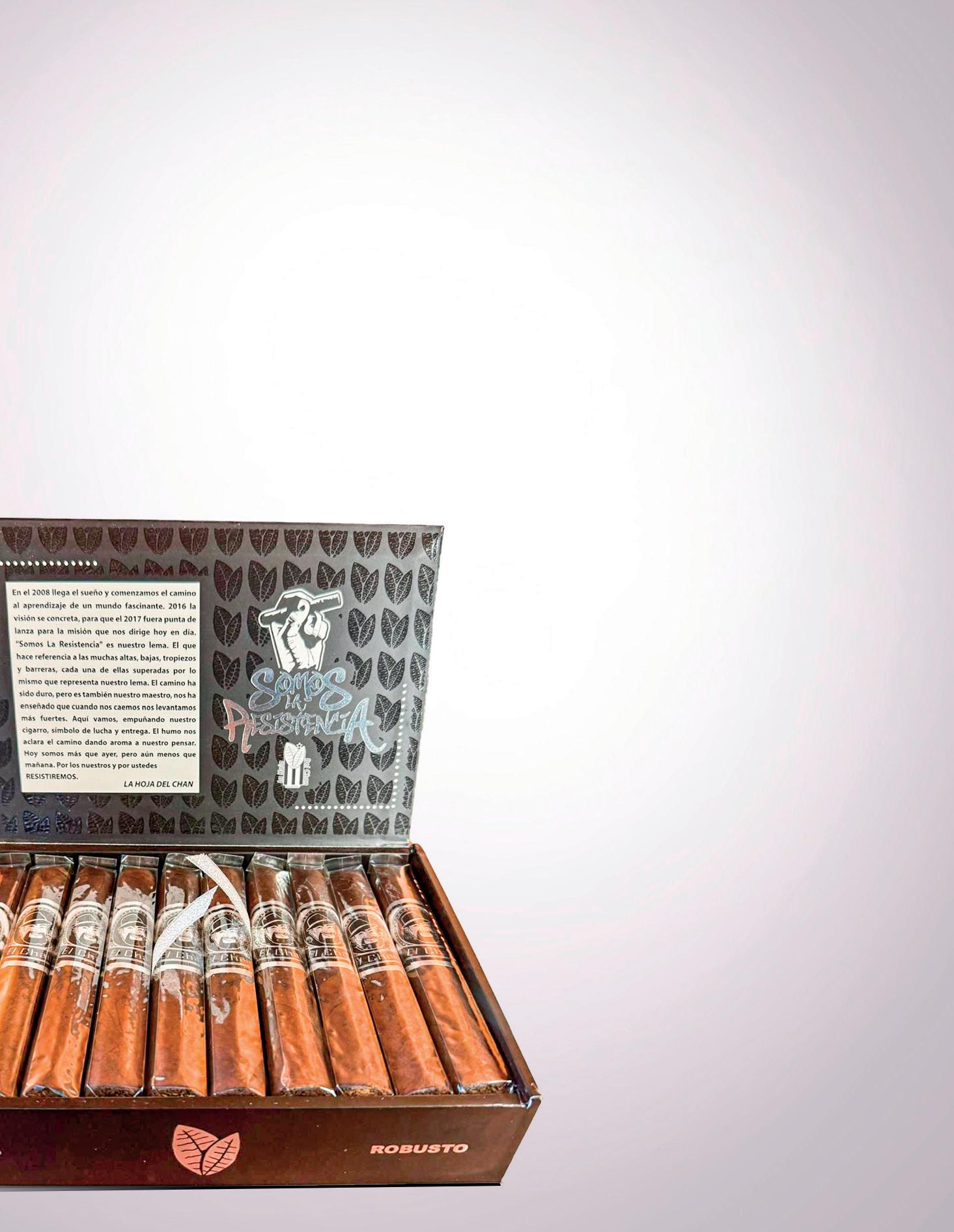
She knows both the business field and the tobacco industry, because in addition to the passion transmitted by Gaby, she has had to assume full responsibility for the business at different times –forced by circumstances–All of this led her to obtain, in May 2022, a certification as an Artisan (roller) from the Government of her country, which she added to her professional training in Psychology and postgraduate degrees in Management and Business.
Accompanied by what she calls “a battalion” made up of family, friends and artisans –many of them even trained by Gaby, and calling themselves Los Hijos de la Hoja de El Chan–, Liz Janice argues that the business was always theirs, “and that is why it is easy for me to continue working.”
During the interview, held via Zoom, we shared different emotional moments. She responds, for example, that she has had to carry the flag of La Resistencia in the flesh.” And she explains: “It means not falling, or getting up in the face of adversity, no matter what happens... your dreams will always drive you and you will stay alive, whether you are on this Earth or not.
“That’s resisting, and he (Gaby) taught us to do it. Because when everyone asked him ‘sell cigars, make cigars in Puerto Rico? But are you crazy?’, he kept going. When he said we were going to PCA and we saw it very far away... and he achieved it. Even if people tell you no, or you stumble, if your ideals are clear and firm, that is La Resistencia.”

I SEE A SPECTACULAR FUTURE THAT SHOULD HAVE BEEN SHARED WITH HIM, BUT I WILL NOW REACH IT WITH MY CHILDREN.”
Among the changes planned for the company was moving the factory and Cigar Lounge to larger premises, with some advantages for visitors. However, Liz Janice decided to maintain its current location, in the Caguas Central Square, where the space will be adapted “to taste a cigar, accompanied by the nostalgia for Gaby’s presence.” In the workshop, production of its core lines and private ones with which there are prior commitments will continue, as well as orders for weddings and events.
Next up, in Galiz’s case, will be the release of a mix she received in a sudden thought while driving. “I was driving and it came to me... I took advantage of a red light to call and give directions to Jonathan, who didn’t believe where my inspiration had come from. But he wrote everything down and now we are doing tests for this new cigar,” she says.
Another project that will have to wait its time is the Escuela de Torcedores de El Chan (El Chan Rollers School), as Liz Janice analyzes the possibility of giving it a twist and creating a Foundation, through which free courses are provided to people who want to delve into this culture. and thus preserve the essence of Puerto Rican tobacco as Gaby’s legacy.
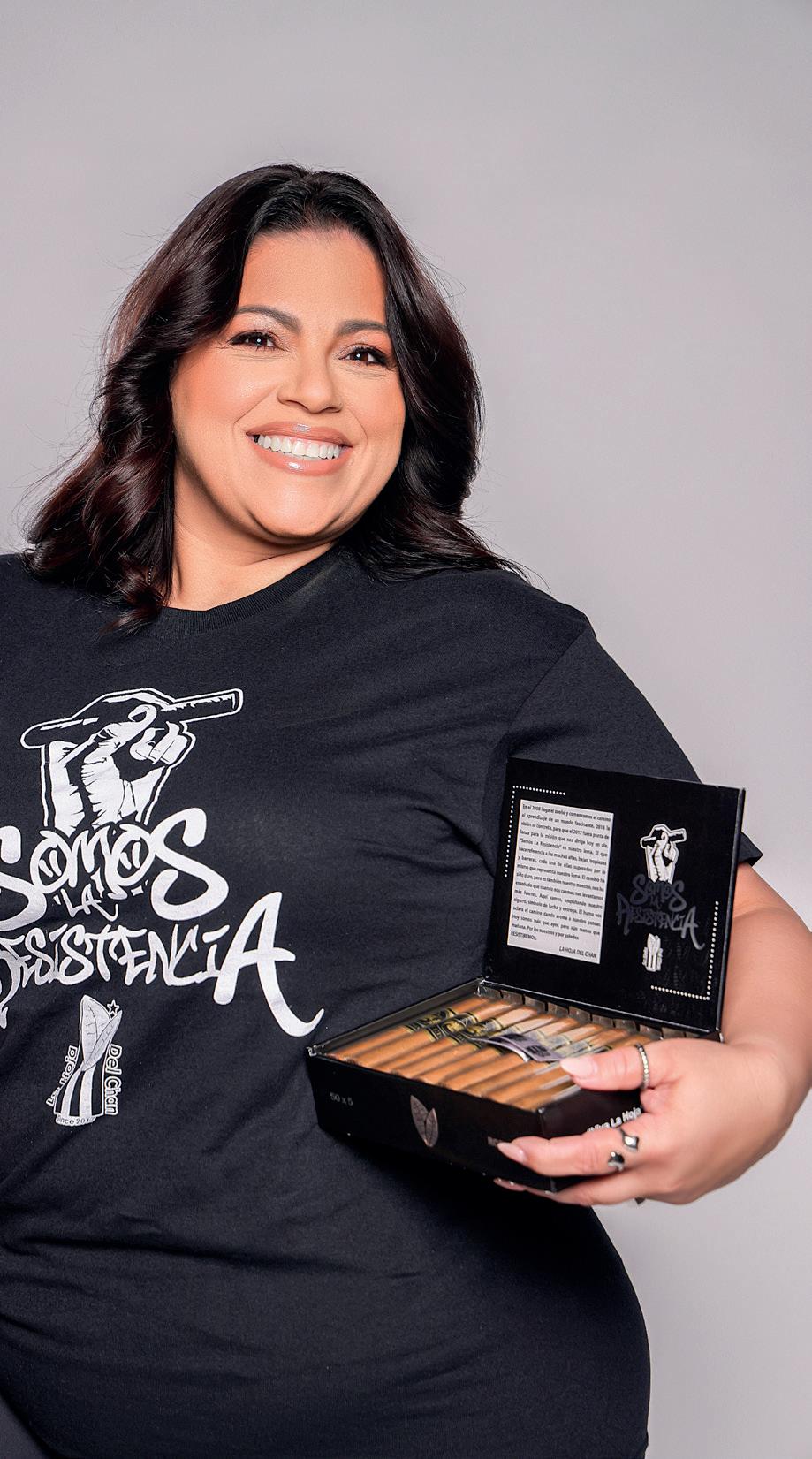
In this regard, Liz shares that before their , together with Gaby she prepared a manual and gathered some artisans, who served as teachers and used it in the instruction of a group of new cigar
The brand’s regular catalog will remain intact, including artisanal humidors, core line and special editions such El Chan Pig (Pigtail), for the holiday Big Bro, a special full flavor wrapper blend, which although it will not be present all year round, will have its seasons to go on sale.
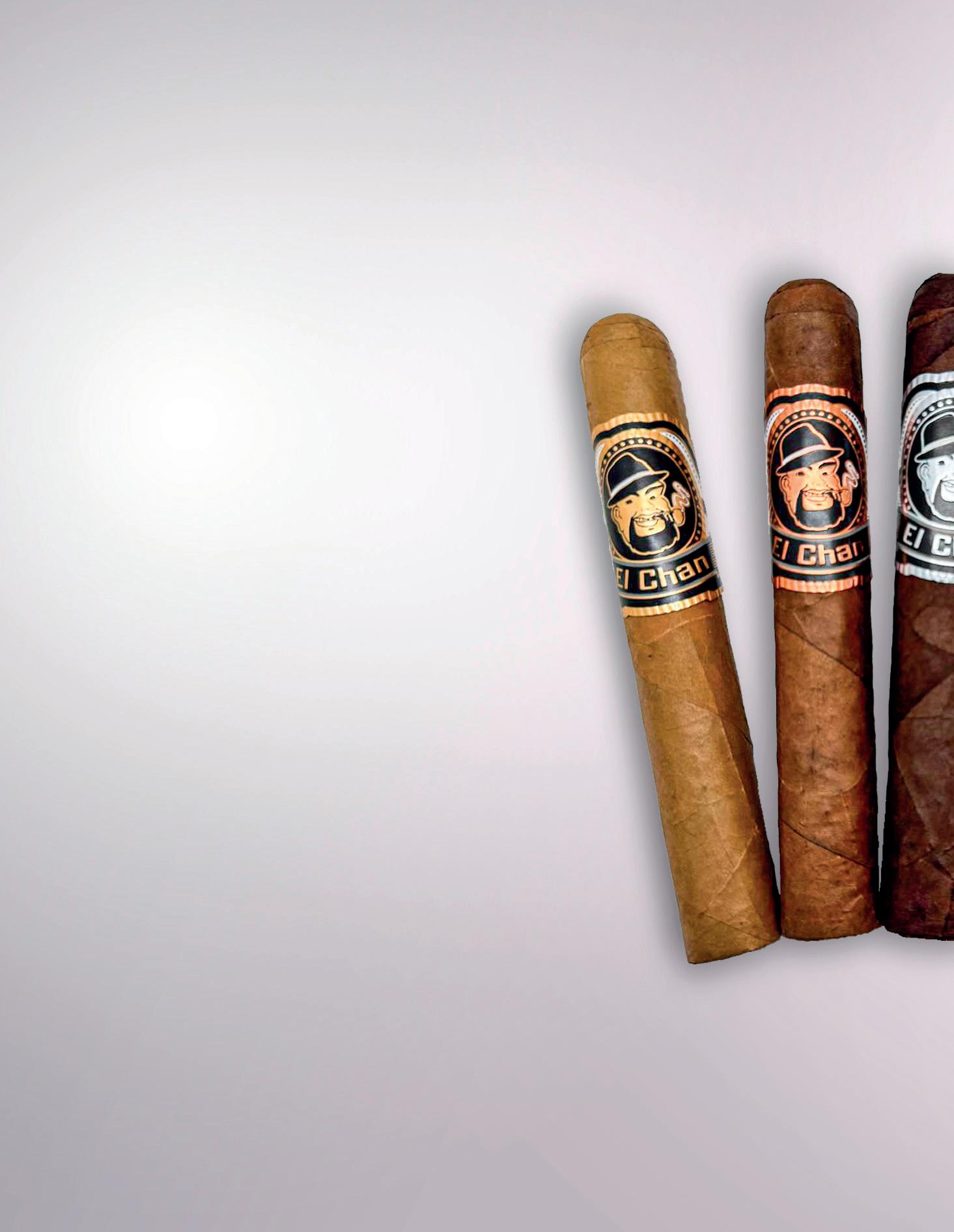
El Chan Cigars are part of the rescue of a tradition that involves the great history of Puerto Rico in the Tobacco World, from its times as a Spanish colony, to its incorporation as a free associate to the United States and the subsequent decline of the industry.
We are talking, then, about the first local brand that ventures to compete with the big ones, offering cigars with many qualities and quality manufacturing materialized in pieces made with love, which leave from the Isla del Encanto to North America and the rest of the world.
As Liz Janice states, there are many cigars and brands, but La Hoja del Chan is Puerto Rican and Gaby’s pride was to bring homeland and culture through tobacco, which well summarizes one of the brand’s mottos: In all of our families, there is a story of tobacco. “This means that if we investigate, in every corner of Puerto Rico we will find someone who once brought home a living thanks to this industry.”
A lost tradition that El Chan was in charge of rescuing; mission that now falls into Liz Janice and her entire family: “Ours are the cigars that every tourist brings back with them,” since their distribution begins in the country’s airports, in addition to their growing presence in stores and Cigar Lounges in Connecticut, Lakeland and Miami, in addition to the website www.lahojadelchan. com and the social networks Instagram @ lahojadelchanpr and Facebook La Hoja Del Chan.
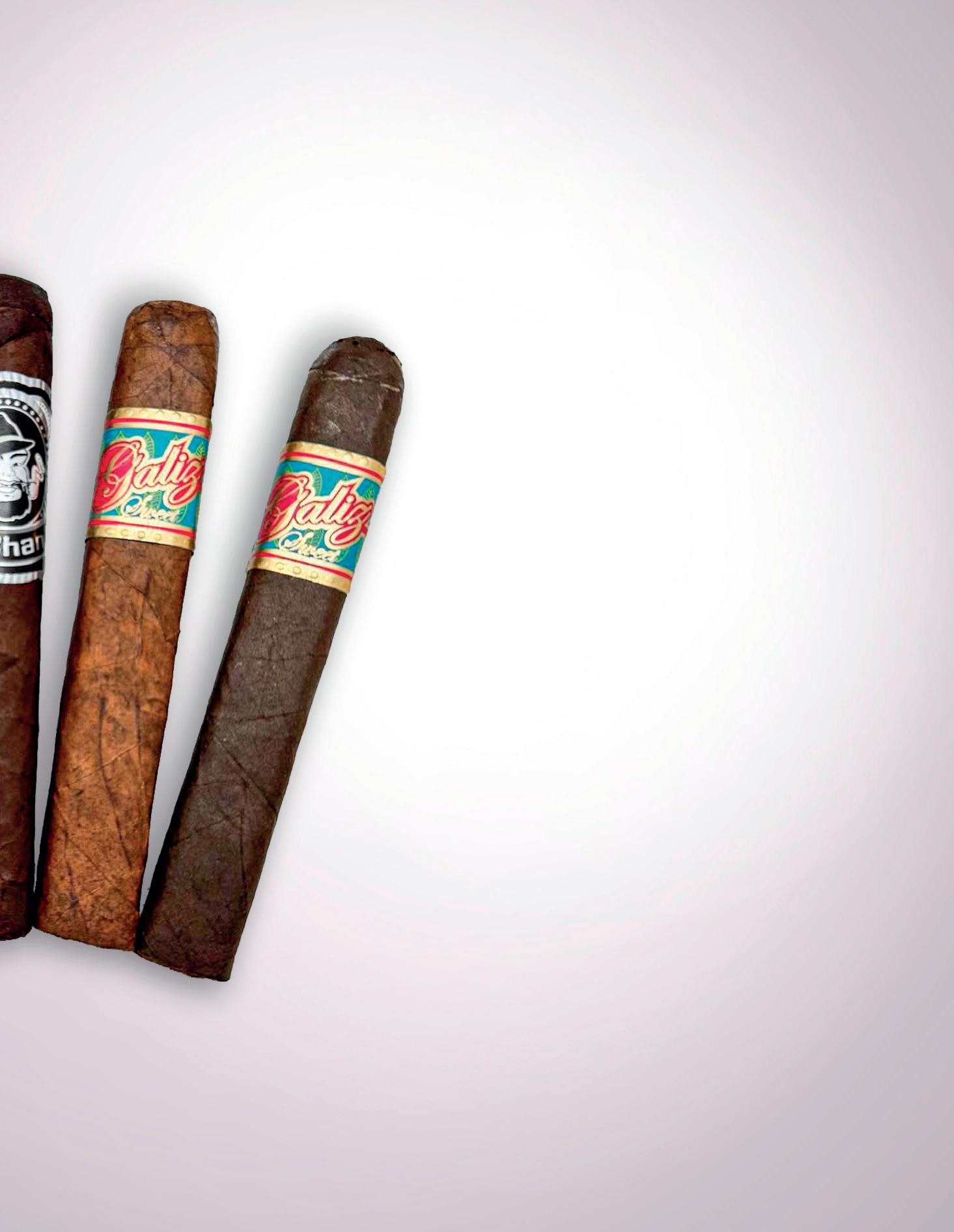
After a successful participation in the PCA trade show, which implied its incorporation into the historical record of the event, for La Hoja del Chan sky is the limit. As a result, there is an extensive list of contacts to call, orders to fill and commitments to attend to, always with dedication. For Liz Janice “it is a bittersweet feeling. “I see a spectacular future that should have been shared with him, but I will now reach it with my children.”
In fulfilling this mission, the company maintains a united family, in which each member has their obligations, whether ringing or attending a live rolling event, playing the role of boncheros or applying the wrapper, which for the moment will be exclusive task of her and the cousin Jonathan. In their case, Los Hijos de la Hoja del Chan, as experienced rollers, have expressed their willingness and unconditional support –if required– to safeguard the legacy of Gaby, their teacher and friend.
Liz Janice believes that all of these achievements would not have been reeached without her husband’s passion for this industry, and his absence does not mean that the love with which he did his work changes or disappears. “Now it is up to me to show that women are also La Resistencia and in this world –where things are usually complicated for them–, we can be in charge of a tobacco company and do the same, or even improve the way the business was developing.”
She argues that before lighting a cigar, many female hands intervened in some of its processes, and that currently it is a common theme for them to occupy management positions in different companies.
She knows very well the importance of what it means to sit at a rolling table, give a great show during an event or make the best cigar in a workshop. “Gaby is no longer there... Now La Resistencia has a woman’s face, and not a goatee’s beard.”

GABY IS NO LONGER THERE... NOW LA RESISTENCIA HAS A WOMAN’S FACE.”
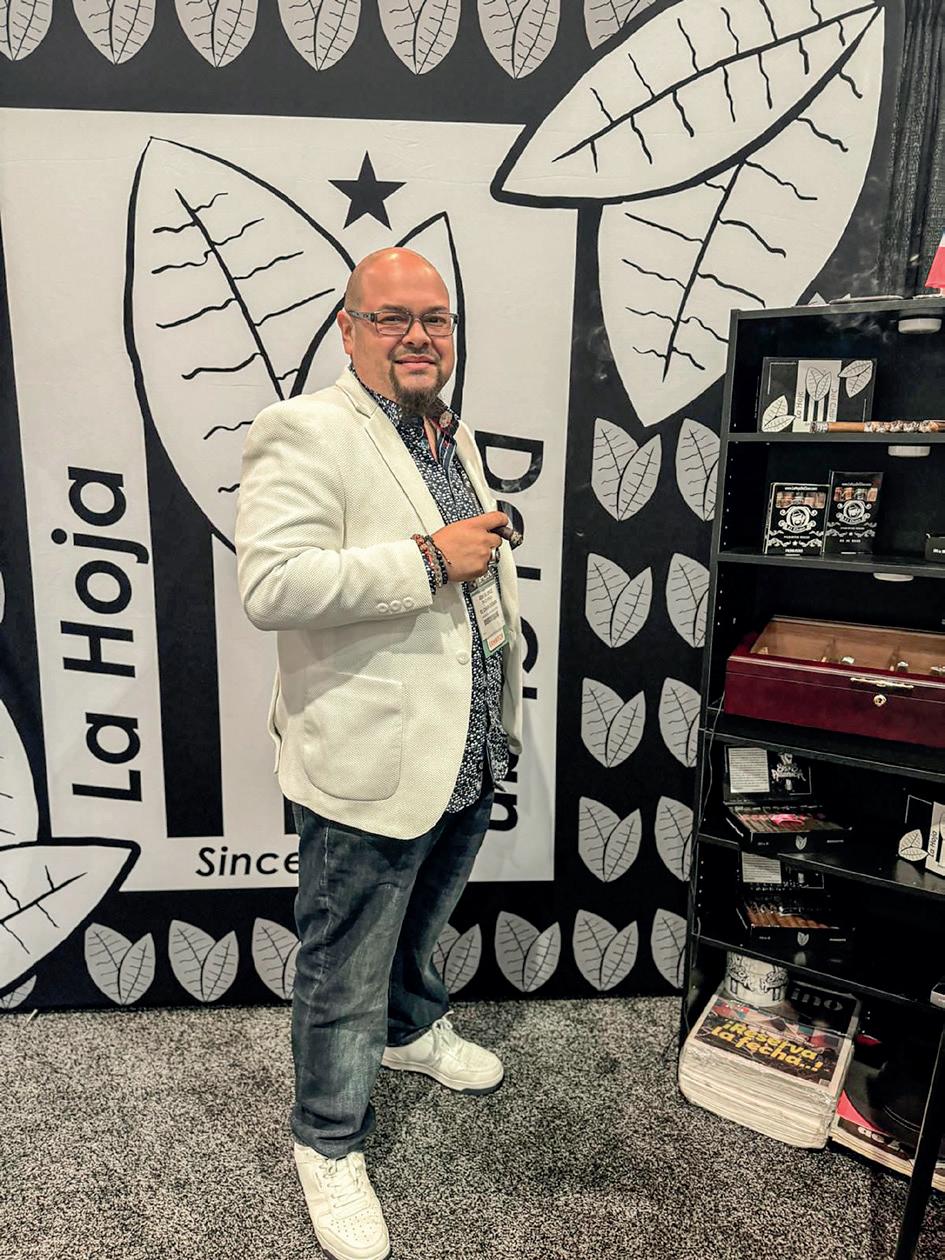

† JOSÉ GABRIEL CRUZ AYALA, El Chan (1981-2024), passed away in Las Vegas, Nevada, US on March 26, a few hours after the end of the Premium Cigar Association (PCA) trade show. As a member of an industry that he loved, he not only fulfilled one of his greatest dreams, but also left his family a business that will continue to advance –as he himself knew how to do: “let’s live one cigar at a time.”
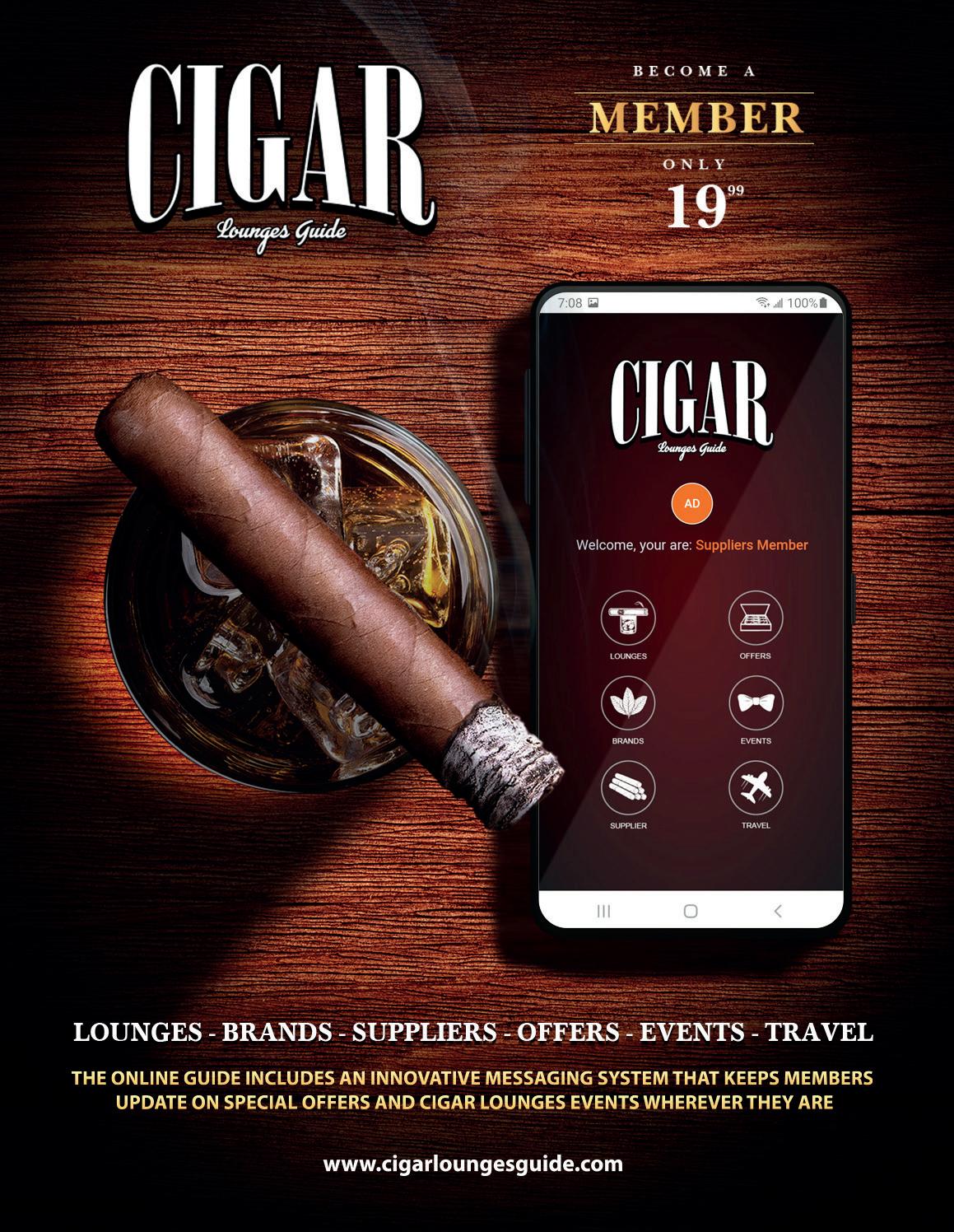

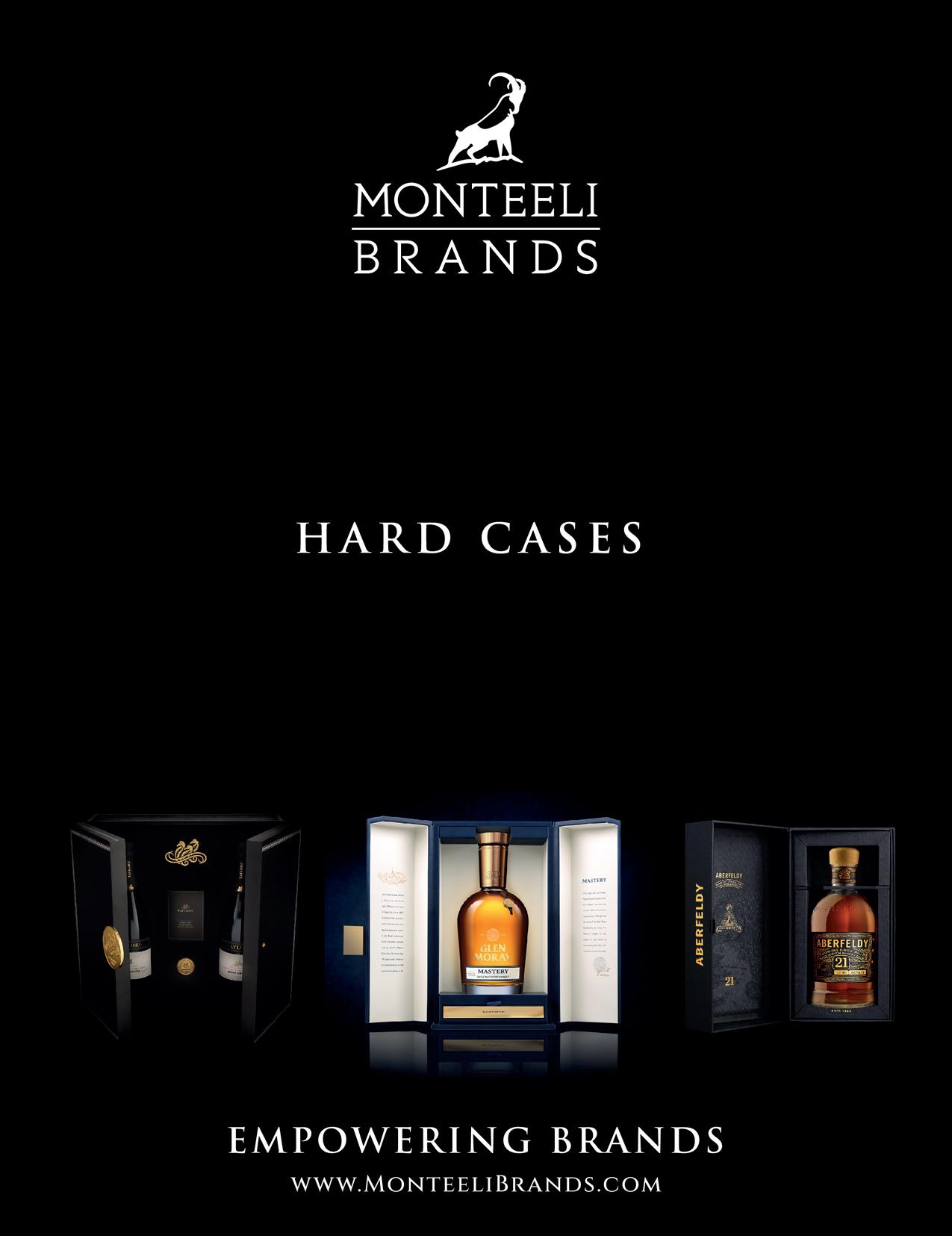


 Jonathan Almánzar...
Jonathan Almánzar...
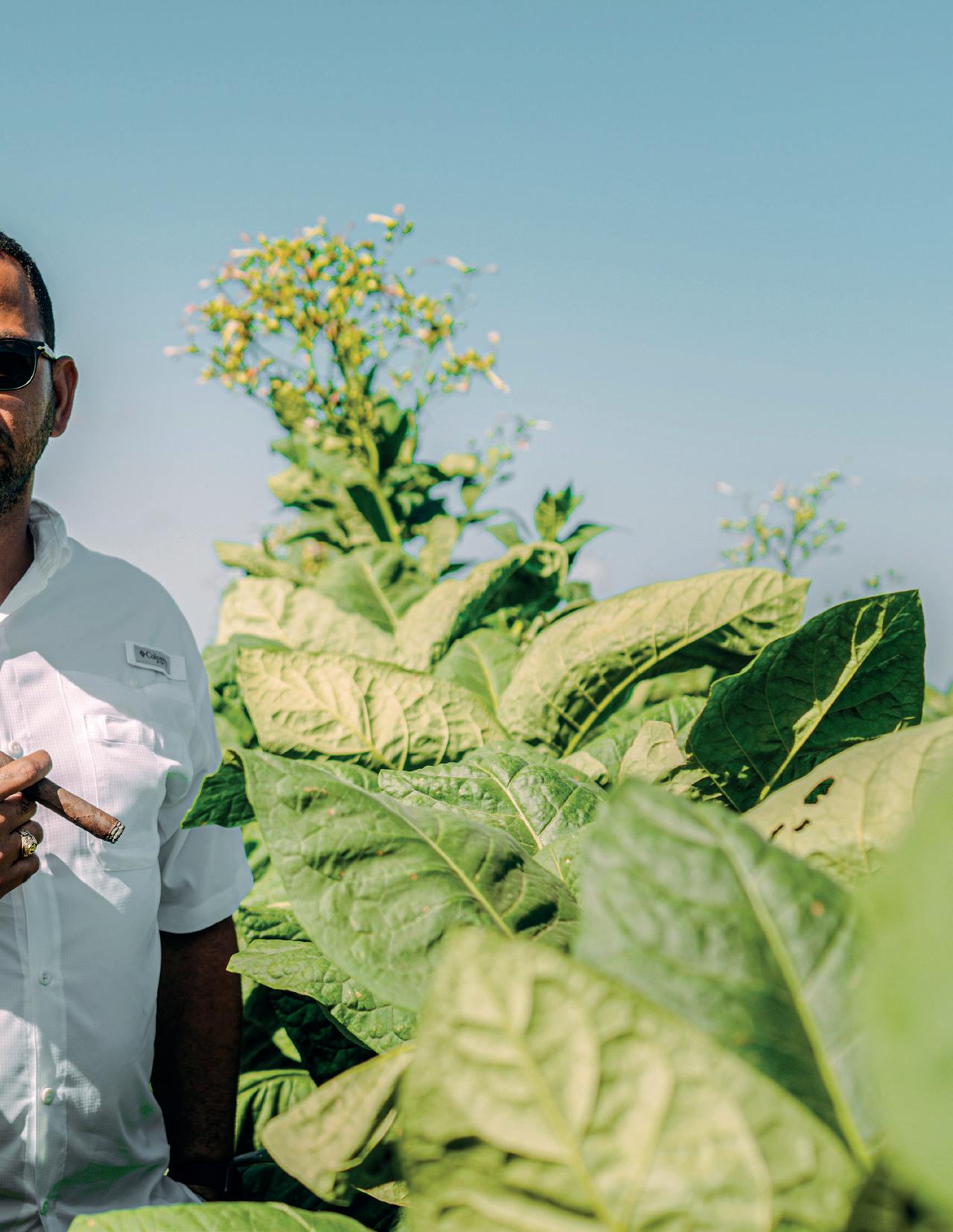
At Linga Cigars, challenges are an everyday theme that represents a series of steps to climb in order to improve oneself, without thinking about the competition. And that is why Jonathan Almánzar, its CEO, affirms that the main characteristic of his companies is constant evolution, which starts from “learning from your deficiencies to develop your strengths.” A learning obtained by traveling the paths of the tobacco industry in the Dominican Republic and the United States market.
According to Jonathan, a businessman with extensive experience, when your business lacks a specific structure to operate in the United States, the first thing that is required is to look for alliances that allow you to take the step towards one of the largest markets in the world; An objective that represents a great challenge, but also the goal that everyone in this industry pursues.
Based on his experience, he explains that a company that is starting out faces endless difficulties when it seeks to enter a foreign market, especially in the tobacco industry, since it is fundamental to have the necessary tools to guarantee the importation of your product, the correct storage, the dispatch of orders, the monitoring of clients and, most importantly –he clarifies– the collection of invoices.
Once this structure is established, whether in-house or via outsourcing, the next step is to strengthen sales actions through the constant presence of the brand, which in the case of Linga arrived in 2021, with a visit to the largest tobacco event in the United States: The Premium Cigar Association (PCA) trade show.
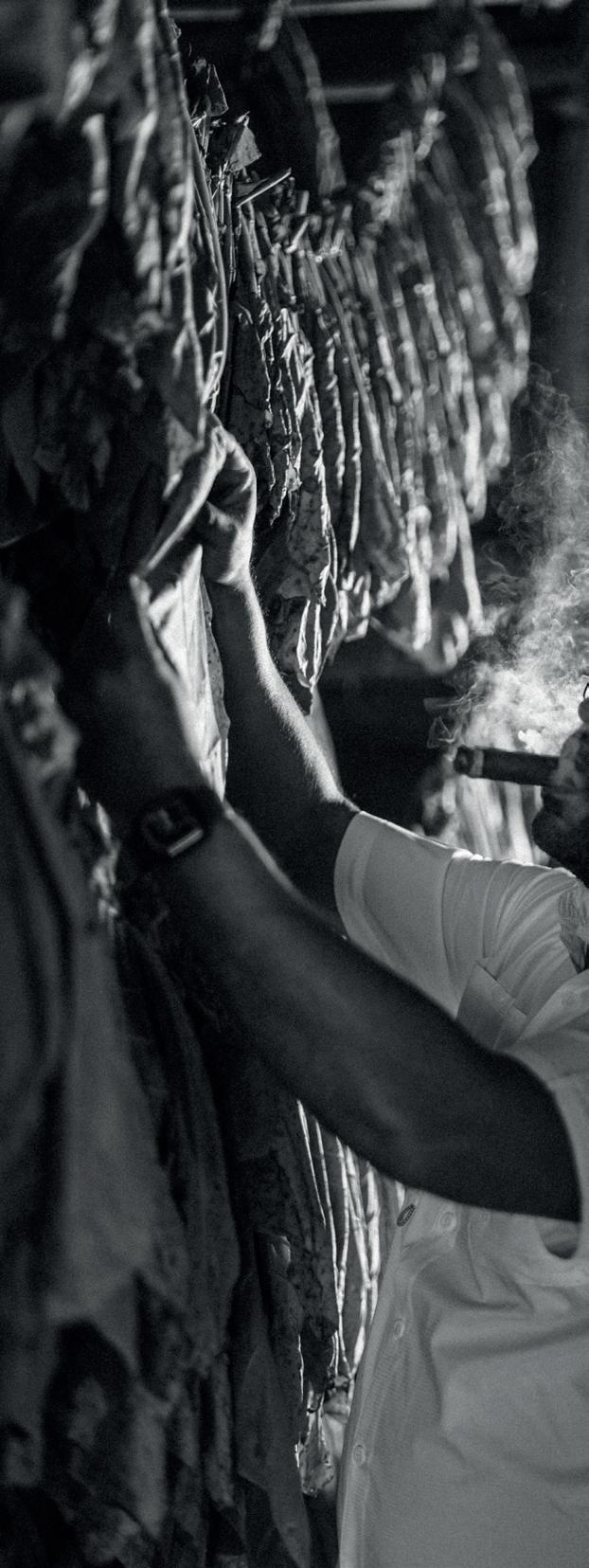

Based on his own learning, Jonathan shares that the best Marketing and Research strategy is to attend as many specialized events as possible, because there is where a brand owner will find the entire industry gathered under one roof.
Although direct contact with retailers and door-to-door visits should not be neglected, events allow you to realize what other brands are doing and what the market is asking for at a given time. “Besides, you know that impossible brand that inspires you; that is, the owners of the brands you aspire to be, and your competition.”
For Linga, entering the United States market was not easy. Invited by friends who live in Florida, Jonathan went to his first PCA as another attendee, to tour the sales floor and study the management of the brands at the event: to know what the industry’s protagonists were wearing, what they were doing and how they behaved.
At the end of the trade show, Jonathan and his team approached the Association to introduce themselves and begin their incorporation process. Meanwhile, the tour of store visits did not stop and they were present in several cities in the states of Florida, Georgia, Indiana, Maryland and Texas, among others.
The brand is currently sold in Cigar Lounges and tobacco shops in Tampa, Jacksonville, Atlanta, San Antonio, Fort Worth, New Jersey, Pennsylvania and Los Angeles, and through Privada Cigar Club and other groups. “We can say that we have a presence in the vast majority of the United States territory,” says Jonathan.

They are also in serious negotiations for the European and Middle Eastern markets, and it is planned to bring the entire line to Asia Pacific islands, such as Taiwan, Hong Kong, Singapore and Malaysia, where different vitolas will be offered, depending on local tastes.
When Jonathan started in this industry he produced his cigars in different factories in the Dominican Republic, and as a client he identified unmet needs; experience that enriched the idea and need to take the processes into one’s own hands and give greater attention to the development of brands.
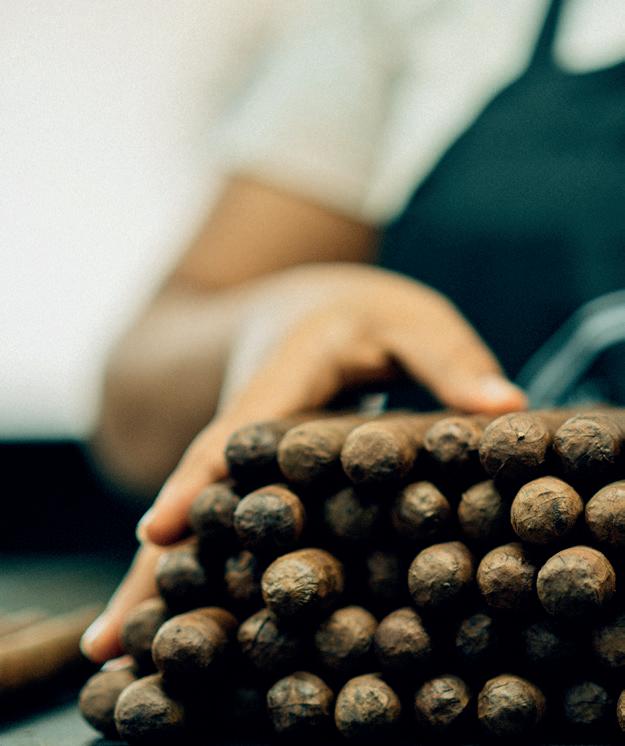

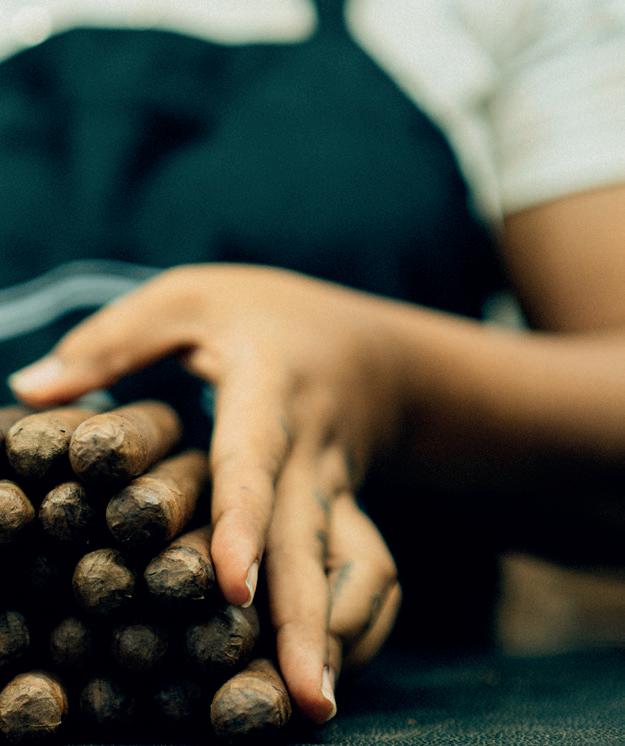
Based on this, verticality has been the main characteristic that drives its factory, Alma & Cru Tobacco Co., to become a successful business. “Even though there are still planks to be laid,” it is on the right path, hand in hand with a different vision.
With more than 25 private labels under its control, the involvement with its clients ranges from the conception of the idea to the launch of the final product, since the quality in the manufacture and creation of the blend –taken for granted– is something which in the Dominican Republic is found relatively easily.
“That is why our commitment is one hundred percent, as far as the client allows us. We ask what they have, what they are looking for, and that’s where the professional guidance sessions begin; something essential to have a good brand,” he highlights.
Returning to his beginnings, Jonathan remembers the difficulties he faced and that is why he seeks to facilitate the path for those who are starting out in this world, offering them not only good cigars, but also the support to achieve the greatest development of the brand.
“At Alma & Cru Tobacco Co. we not only manufacture cigars. We are a cluster from which we offer a wide range of services that include packaging options, ringing, Marketing and even advertising, for example.” This is because sometimes foreign clients cannot complete each of the procedures necessary to have a brand, “but we follow up and that has been our strength,” he explains.
Jonathan has always been a restless businessman and, as such, he started in this industry with a brand and later with his factory, but he needed to have control of all the processes to guarantee the best quality in each product.
The natural step to satisfy this new need was taken with the incorporation of some small farms, where he could plant and harvest his own tobacco. “Currently we do not produce even ten percent of what is needed, but it is a long road that we have somehow begun to travel,” he says.

The goal, he adds, is not to grow all the tobacco required to produce his lines or the private labels he manages, but to have good leaves to control the fermentation process, bring the tobacco to the required standards and then complement it with raw materials from other farmers.
The objective of Linga is clear: Take as many processes as possible under its control, and in this case “it is a separate business, another point in the industry to pay attention to. It is difficult, but at the same time, beautiful.”
Bhuké Cigar Lounge and Bar is another fundamental part of the Linga cluster, a spontaneous result of the needs of a growing boutique market.
Jonathan initially thought of marketing cigars via the Internet, but his clientele was looking for a space to smoke and share, little by little “colonizing” an outdoor place that they had; a patio adopted as his own by the friends who visited him.
In his own words, Bhuké –originally known as El Patio– is the very representation of Dominicanness: “a Lounge with little protocol; imperfect, but happy and tropical.”
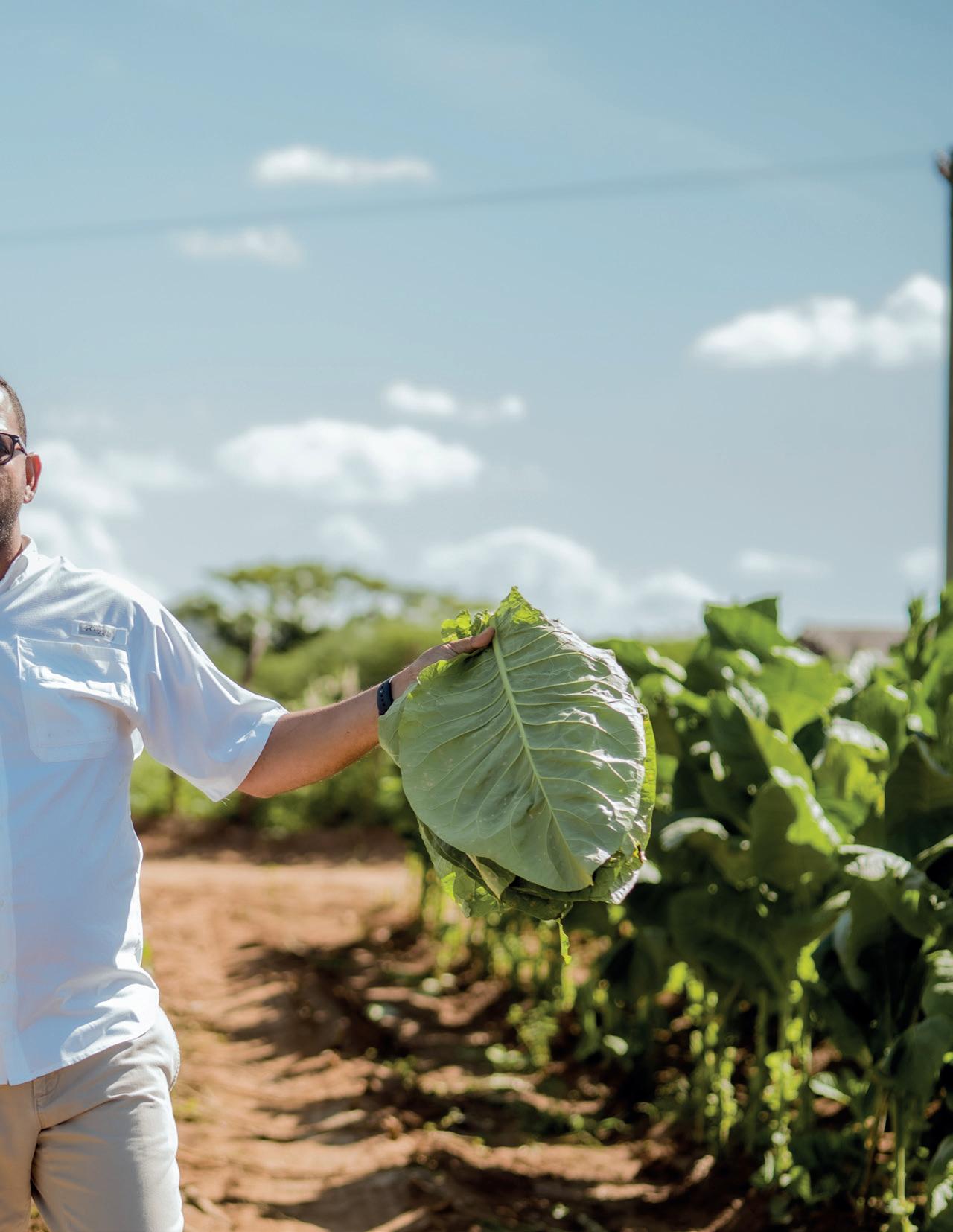
In addition, it is a site dedicated to local boutique brands, where the sense of verticality that characterizes the company led to an open humidor for emerging cigars that did not find a place in traditional stores and tobacconists.
For Jonathan, his participation in the industry is not a game, but a mission that is constantly evolving, under the idea of doing things better for him, and not for the competition or any other reason. And he thinks that people appreciate when you act this way... “more so when they haven’t visited your space or smoked your brand for a while, and they realize that there is always one more brick” in the construction.”
We talked about the spirit that Linga imprints on all its products and businesses, based on love, enthusiasm and the healthy desire to compete against themselves to grow a little every day.

It is, in some way, a constant struggle to perfect every one of its processes, overcoming challenges and seeking international recognition. “We do our best and it is up to the public to prove and rate our achievements, to give us, or not, their trust and preference,” concludes Jonathan.

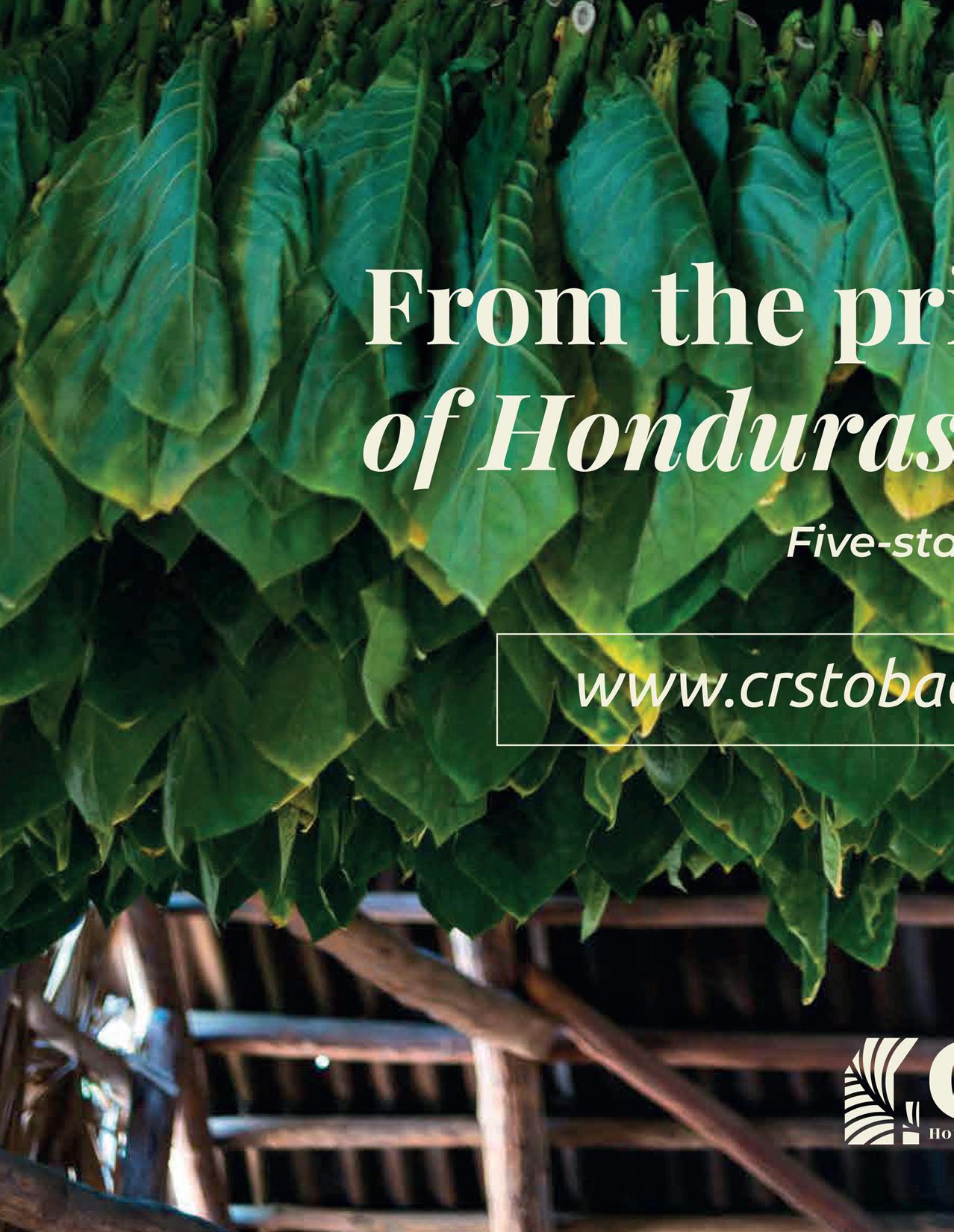
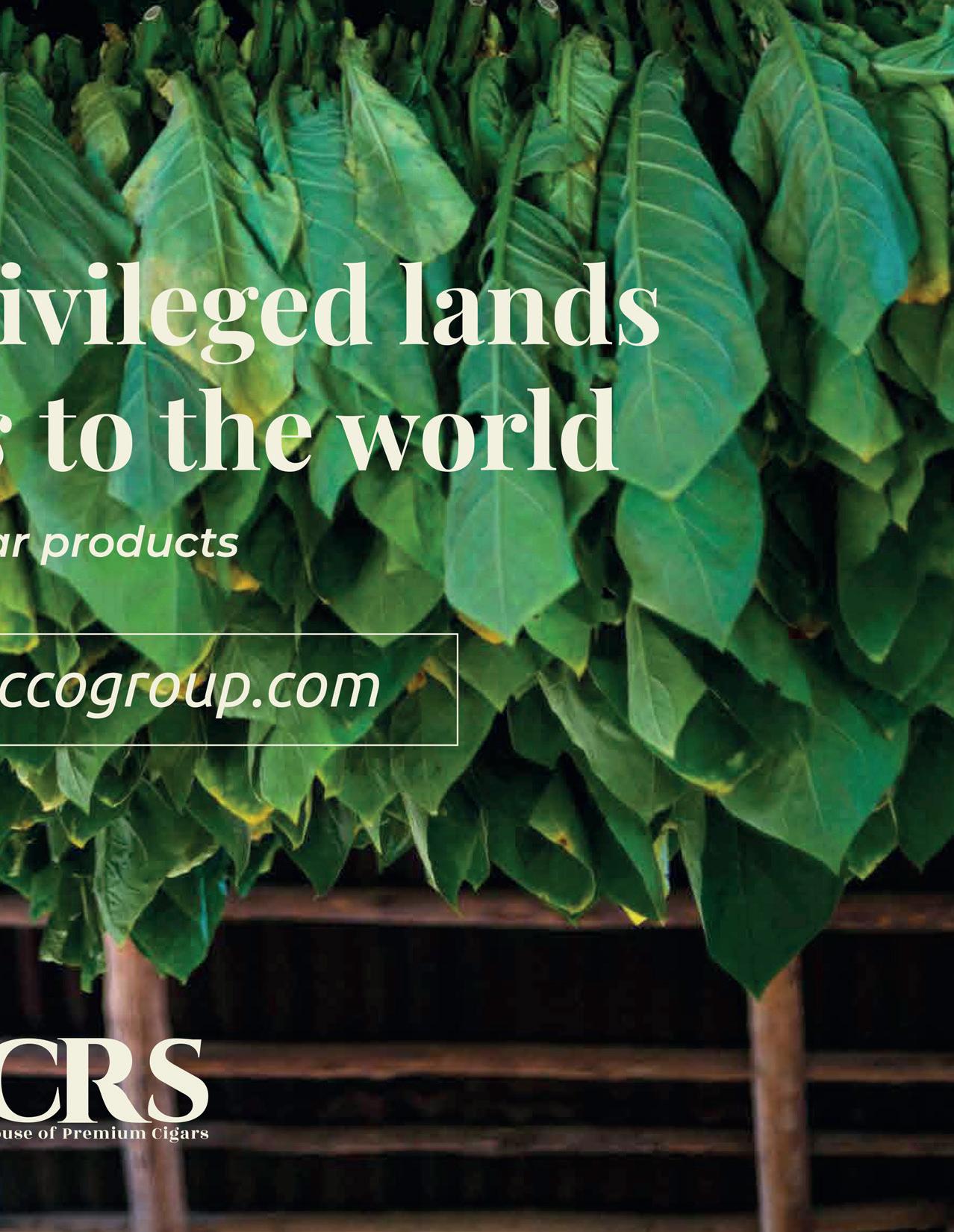

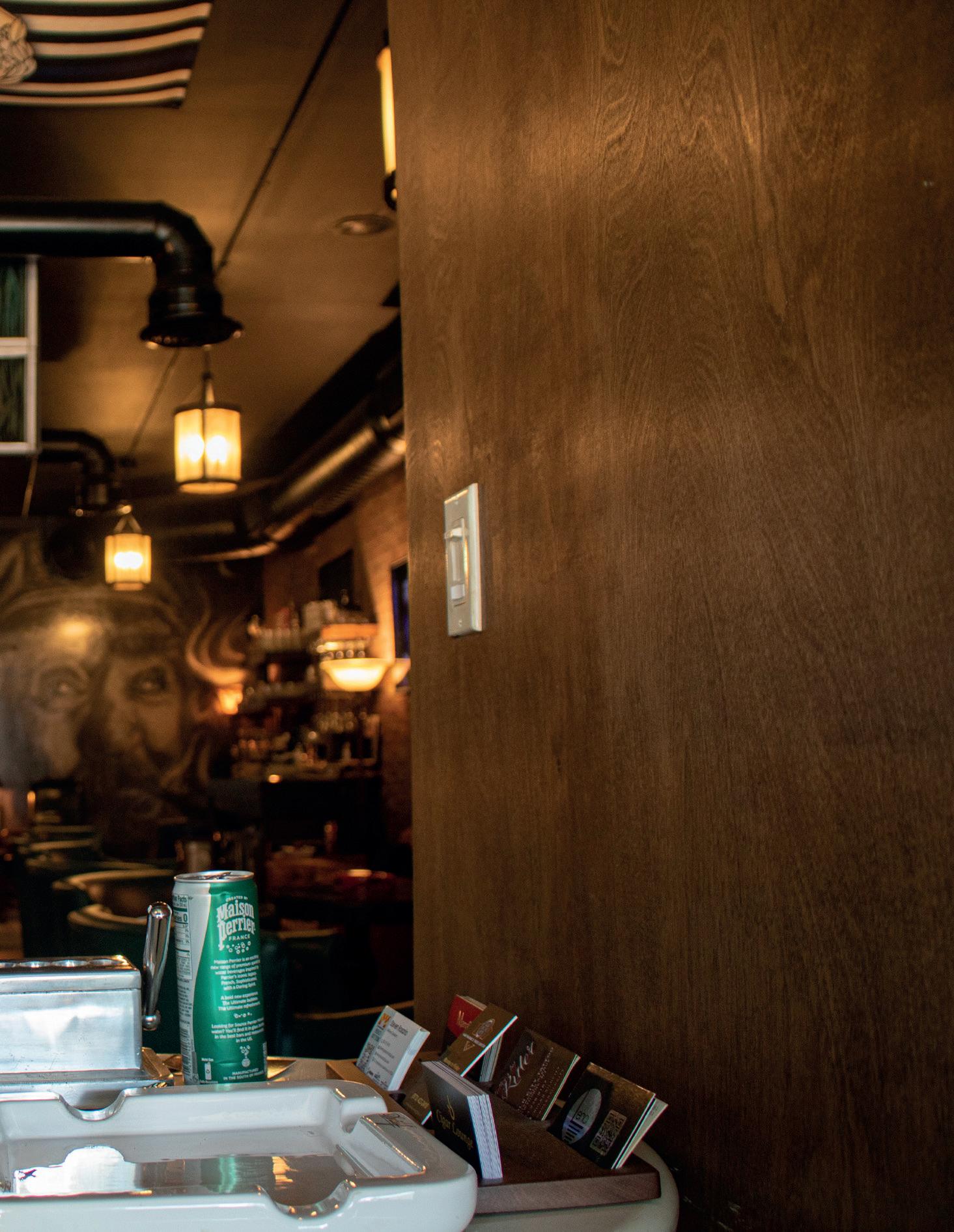
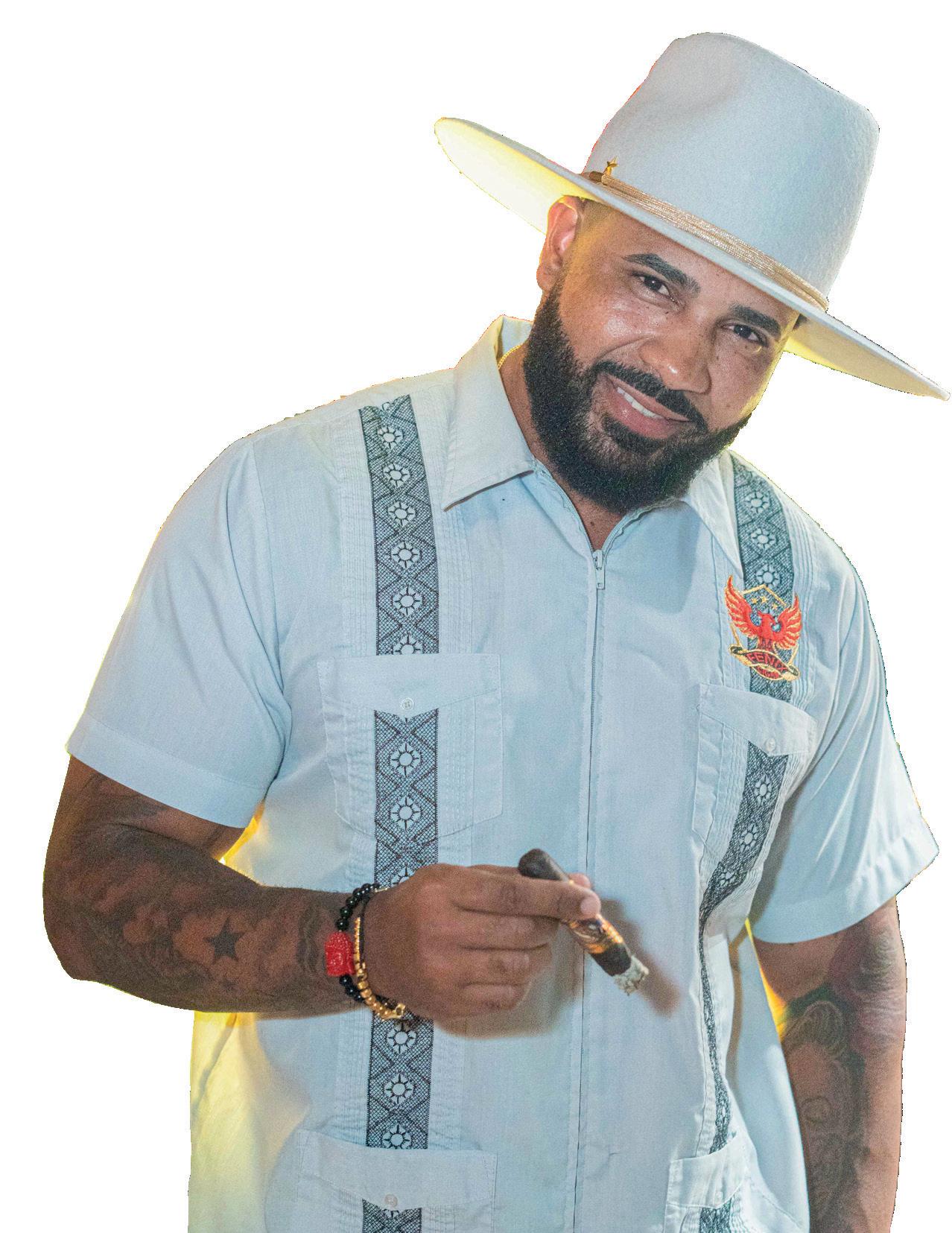
After ups and downs, half a life in La Canela, Santiago de los Caballeros, Dominican Republic, and more time in New Jersey, United States, the rebirth of El Fénix is a reality, and after constant evolution and the patience that this industry demands, today –from the ashes of a diverse past– the bird spreads its wings and takes flight in the adventure of premium tobacco.
Heir to an interrupted tobacco tradition, Carlos Cruz was born and raised in La Canela, surrounded by the 19.4 hectares planted with tobacco owned by his grandfather, Francisco Antonio Cruz, El Negro, who in the absence of his father was in charge of his upbringing and involuntary indoctrination in the Cigar World.
At that time, shortly before the year 2000, La Canela was a small town of humble and hard-working people dedicated to the countryside; tobacco and pineapple growers, among other agricultural products, where there were few houses, Carlos remembers.
The second son, with an older sister, a younger sister and seven other half-siblings on his mother’s side, Carlos grew up under the tutelage of his grandfather because his father had emigrated to the United States in search of a better life.
This is how he lived his first 14 years, walking the streets and the countryside next to that dark-skinned man, to whom he owed his nickname, who always carried a cigar in his mouth and another in reserve.
According to Carlos, that coexistence sowed in him the seed of a taste for tobacco, since many times he was in charge of acquiring and lighting El Negro’s cigars: “The old man sent me to El Chepe’s winery to buy cigars, without a ring or brand, and I gave them to him already lit,” he shares during the interview.
That man dedicated his entire life to tobacco, until the market changed and the leaf was no longer a priority. As age also represented a difficulty, he ended up handing over his lands to the leasing model for planting cassava, pineapple and banana.
No one else in the family inherited the taste for tobacco, but Carlos, and not by tradition, but as a genuinely acquired taste. “Even when he was reprimanding me, my grandfather had a cigar in his mouth. He never disciplined me physically, but he talked to me with his cigar and a guava stick, the kind that doesn’t break with anything. He was like my father, and I copied his tastes,” he says.
His grandmother was also a smoker, but she preferred Andullo, the fermented tobacco paste that she skillfully wrapped with a fresh lemon or orange leaf, to which she stuck a thorn to hold the piece together. “The old man taught me how to light cigars, but I didn’t learn how to make grandma’s cigarritos.”
At 14 years old, Carlos Cruz began his journey to New Jersey to reunite with his father; adventure in which he faced the culture shock of moving from the countryside to the city, in addition to finding a considerably different language and climate.
When he arrived in the United States, everything seemed monotonous and gray to him, but over time he managed to get used to it to the point of completing his High School studies, a technical course in electricity and trying his hand at a career in Medicine; objective that could not be met due to economic circumstances, mainly.
This brake on his school aspirations did not stop him from continuing to pursue his dreams. Since 2006, once he graduated from High School and supported by a thick beard that made him look older, Carlos took refuge in premium tobacco to relax, make friends, and very soon start a business.
“I felt good to be able to smoke a cigar. I felt in my blood that I needed it and when I reached a goal I congratulated me with a cigar. I used to go to the store, bought it and stayed to smoke with the owner, talking. Any celebration served me as an excuse.”
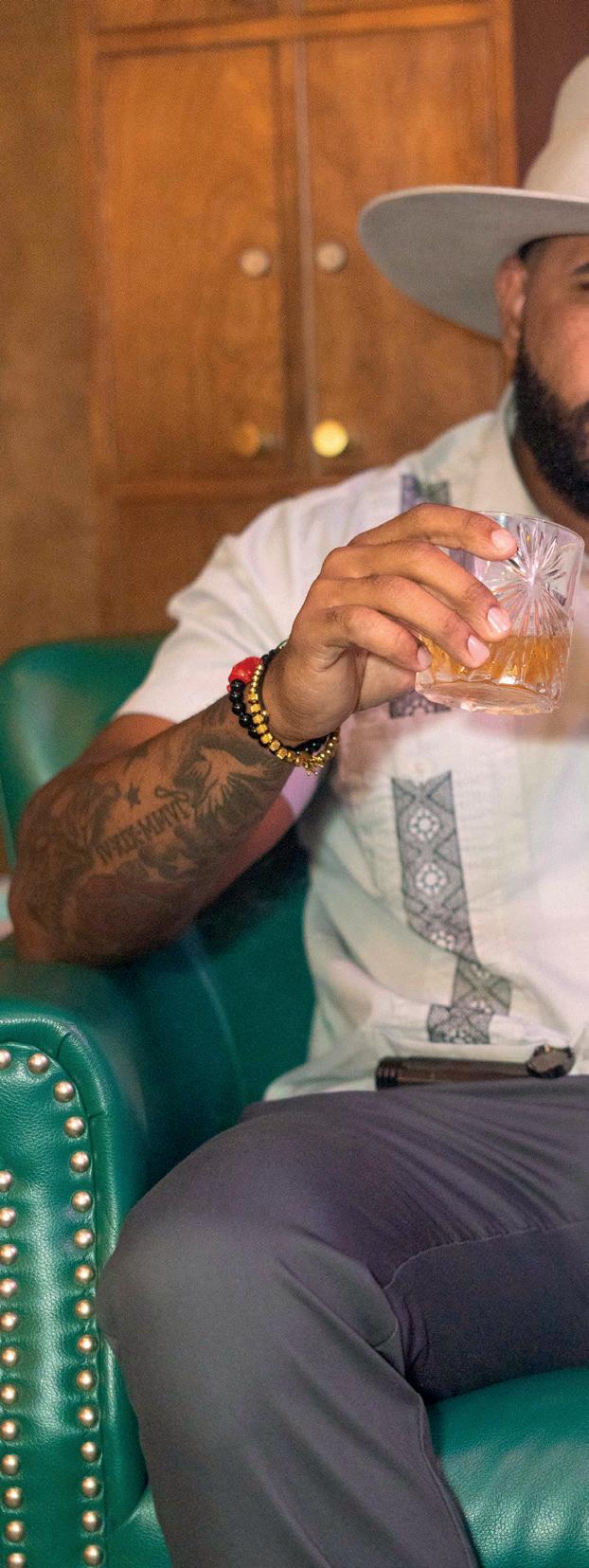

Thus, the idea of his own brand began to take shape and on every occasion, such as a birthday or a Baby Shower, with the permission of the host, Carlos brought cigars to celebrate and, as time went by, also to sell: “they already knew that wherever I went, the cigar too.”
The first strategy was to make a name for himself: Fénix Cigars, which he adopted as a seller. And the second was to try all the blends he could while finding the right profile to launch his own brand.
As an unofficial distributor of countless brands that he obtained through the Internet, he satisfied his regular customers and their palate, in this search for notes and aromas that reflected their tastes and personality.
“The cigar attracts attention and people always appear who want one to take to a guy, for example. I sold Arturo Fuente, Romeo y Julieta, et cetera... from everyone. I earned 10 or 5 dollars, but the idea was to make myself known among people and not give away what I bought for myself. That’s how I formed a clientele and with them I started selling my own brand,” he adds.
The elements of success were added little by little, the doors opened and everything went well. For Carlos, his time as a salesman had been consolidated, combined with his occupations in the construction and transportation branches. It was the right time to take the next step.
In search for the perfect blend, he traveled regularly to Santo Domingo to visit different factories, pairing tobacco with coffee or whiskey, and returned from the Dominican Republic to the United States with cigars to share and gather information. Two years passed before he found the blend he was looking for, something similar to an Oliva Melanio Serie V, with a medium strength that always pleased his palate.
The final choice was Ceniza Cigar Factory, a company he arrived at thanks to the advice of Félix Ferrera, a designer whom he had entrusted with the creation of his ring six months ago.
With the advice, support and expertise of those who run this factory located in Tamboril, province of Santiago, and the Master Blender Pablo Estrella, he finally obtained a creamy blend, without much spice, with notes that come and go in each puff without saturating the palate: “I was looking for a universal bend, that would be liked by as many people as possible.”
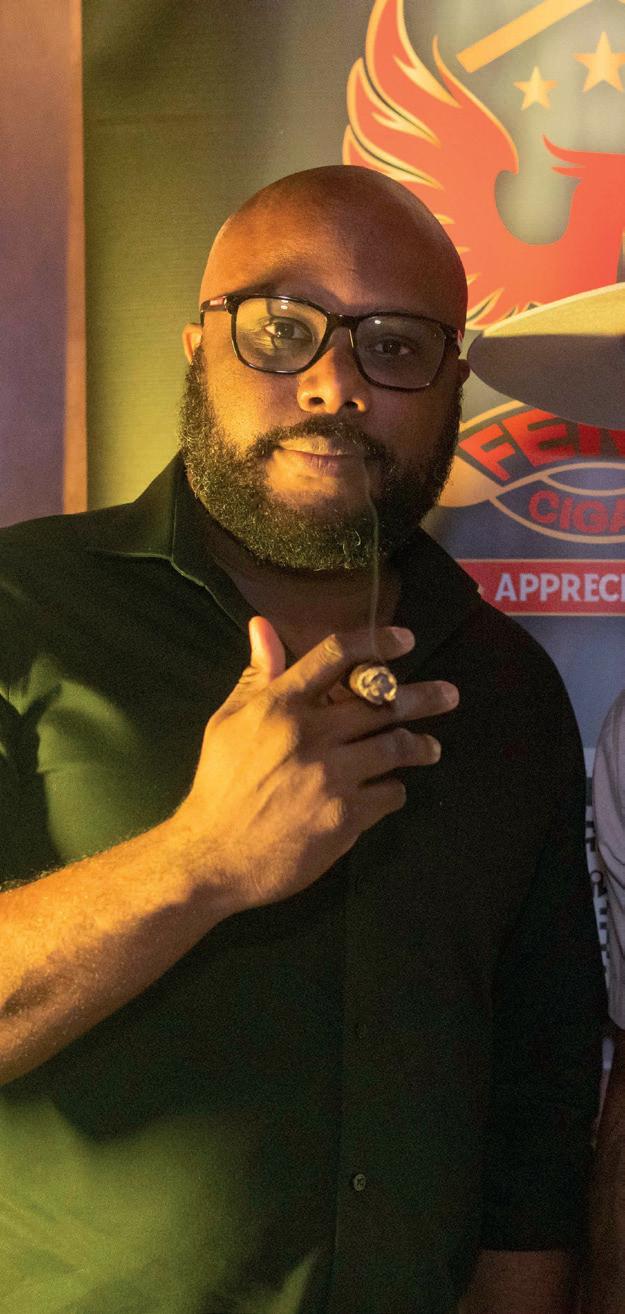
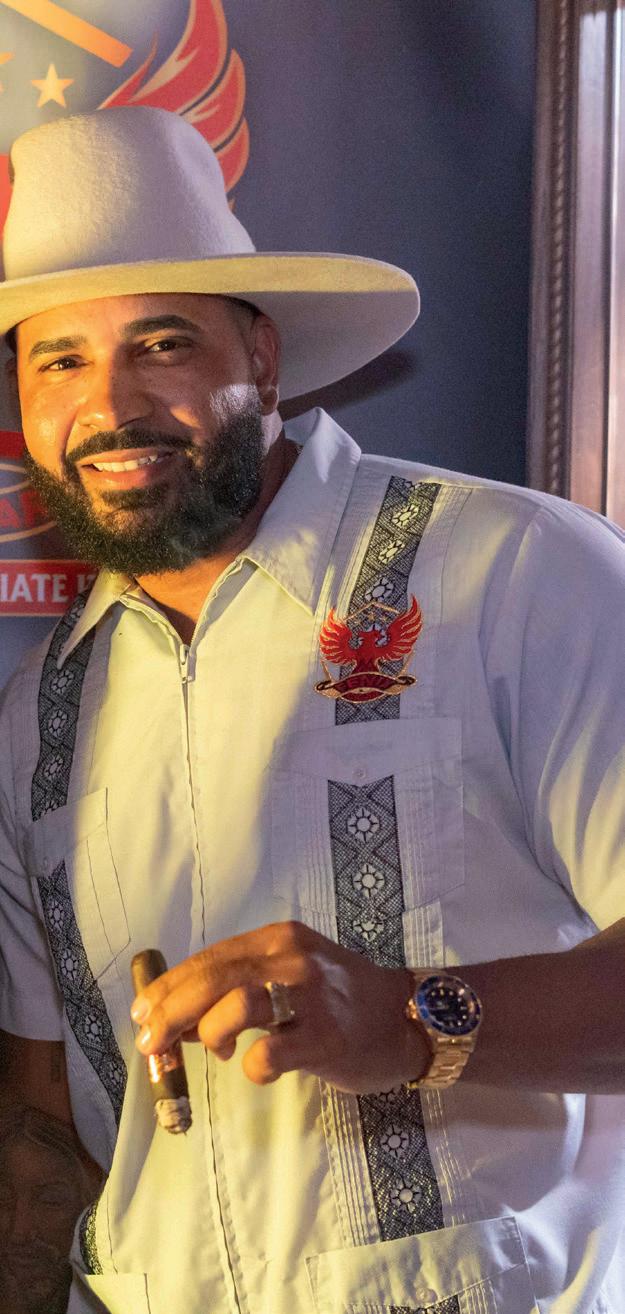
Thus, two years ago his first cigar came onto the market, a Toro San Andrés Maduro wrapper, Nicaraguan binder and filler, wrapped with a navy blue and gold ring that contrasts well with the dark tones of the tobacco.
Carlos considers that patience is essential in this industry, but that does not mean he remains still, since he already has the design of the rings and the idea for his next releases, of which he can anticipate that a reddish color will distinguish a Connecticut wrapper cigar.
“We are ready to complete our core line,” he continues, “but as in those days as a salesman, I first want to position myself among the people. The idea is for them to know that Fénix is a good, different… a five-star cigar,” he details.
The brand is currently sold in six stores in the United States, taking one step at a time, but always with ideas, innovation and collaborations. Without rushing, in accordance with the philosophy that Carlos has maintained from the first moment: “Create connections and relationships to make yourself known.”
The first store added to his client portfolio, JO Cigars, arrived like this, as Carlos came to smoke something, talk and share his cigar. In the second, The Cave Cigar Lounge, the procedure was similar, with a bit of luck and charisma –as he considers it– as his cigar reached the hands of a friend of the owner, who recommended including the brand in the store catalog.

Now, Fénix can be found also at Casa del Tabaco, Newark and Sparta, NJ; at Leafs Cigar Lounge, New Milford, NJ; at Puros Cigar Lounge, East Stroudsburg, Pennsylvania, and at Havana on the Hudson Cigars, Weehawken, NJ.
For Carlos Cruz, constant evolution is a requirement and the next step is to reach where his grandfather did: reach the goal of planting tobacco to help other small brands get ahead, as in his own case.
“Sow to reproduce our products everywhere and take the brand to a high level. Send the message that it is always good to support




small companies that dare to launch a product on the market, that they appreciate it, share it and not judge it without smoking it, because until then the sacrifice and work behind the products is appreciated. cigars from a brand that gives the best.”
Fénix describes the life of Carlos, who maintains that it depends on how you do, you learn and your mistakes help you improve. “I stumbled many times. Sometimes things went badly for me, but I always came back and went up. You know that the phoenix dies, but is reborn from its ashes and flies high. That is how I feel. I am a person who, when I start something, doesn’t stop until I finish it.”





The Fratello Cigars logo, the company founded in 2013 by Omar de Frías, a former employee of the National Aeronautics and Space Administration (NASA), was placed on a capsule that will remain on the dark side of the Moon. It is the first part of an adventure, with which it is hoped to bring the first cigar to the natural satellite of our planet.
As a Dominican, Omar was attracted to this industry from an early age, thanks to his grandfather and other older people who enjoyed tobacco inside a store near the court where he used to practice basketball.

His hobby began when he was 17 years old, thanks to a León Jiménez cigar: “I think I didn’t honor it as I should, because I coughed too much, but I remember that the sensation was memorable and made me feel different from the rest of the guys who smoked cigarettes,” he remembers.
Some time later –as a result of his training–for 12 years he was in charge of different projects at NASA, after which Omar felt the need to explore the business world, “And what better, if it was through cigars,” he says. This decision gave rise to Fratello.
The company’s products, with presence in 28 countries and more than a thousand points of sale in the United States, have in their core line the Clásico, with Nicaragua wrapper; Bianco, Negro San Andrés wrapper, and Gold, Connecticut Ecuador wrapper. Fuoco is a short version of each of them, with 3.5 inches, 50 ring gauge, pigtail and closed foot.
There is also the Italian Collection with Arlequín Maduro and Connecticut; the State Exclusives, with Texan, the Camo Value Series line and some limited editions.
The NASA Inspired line was born with Navetta, a cigar with Ecuador wrapper, Dominican binder and Nicaragua filler, and the Inverso, with the same blend, but inverted: Nicaragua wrapper, Ecuador binder and Dominican and Nicaragua filler.


The latest addition is Lunar, a Connecticut and Cameroon wrappers cigar that celebrates the moon landing of Intuitive Machines, a company founded by an Omar’s friend that won the next three contracts for commercial trips to our satellite.
The people involved in the project liked this cigar so much that it was decided to place the Fratello logo on a capsule that will remain at the south pole of the Moon, known as the dark side, where it could last –according to calculations– until near of 2.2 billion years. “On this occasion it was only the logo, but there are plans to also send a cigar,” says Omar.

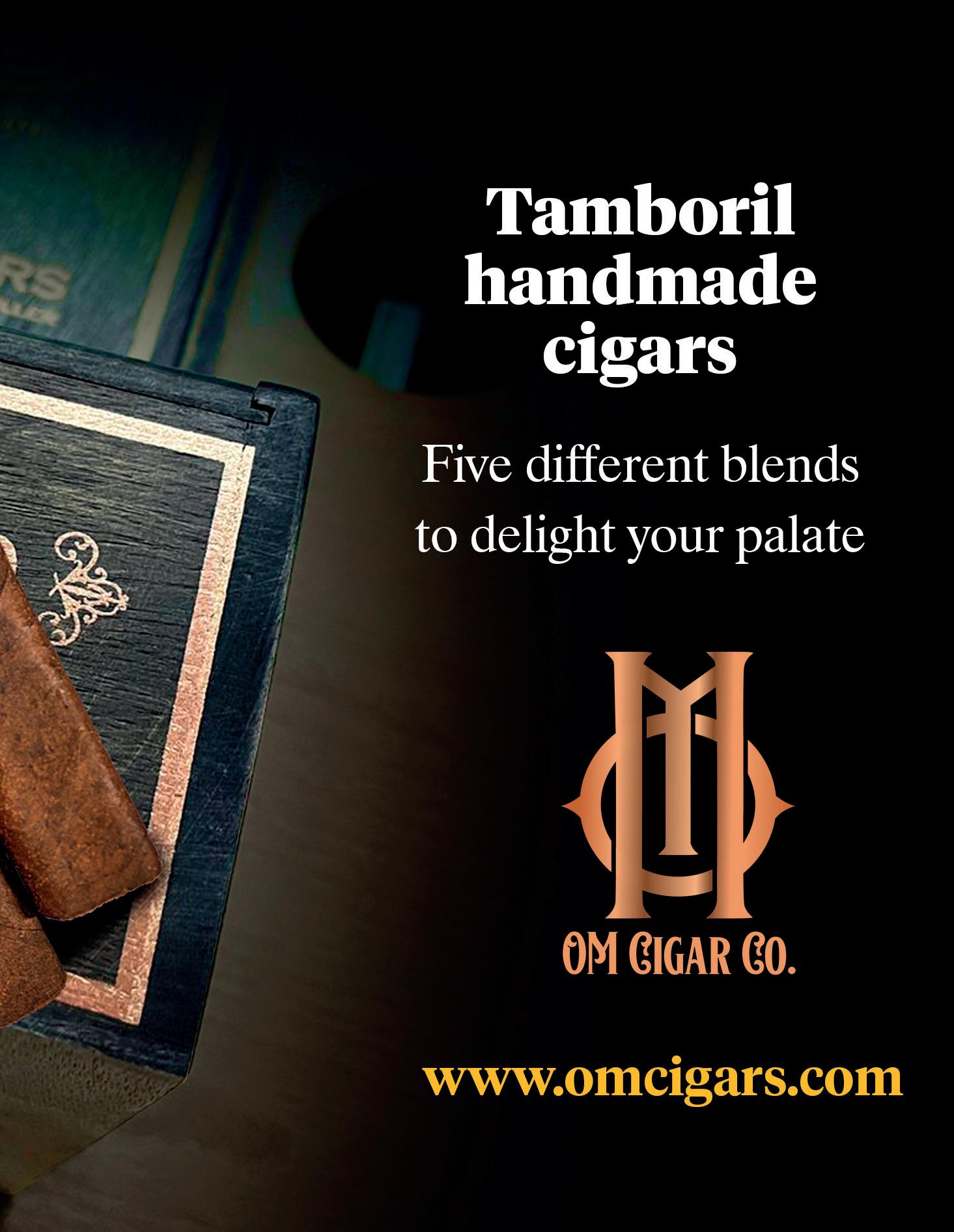
Headed by PhD Anastasia Psomiadi – expert in ethical and responsible entrepreneurship; active for a long time in the international field– , the SOTL Global Movement creates a positive change in the Cigar World, breaking stereotypes in search of creating a better world, inspired by the love for people and cigars.
From its establishment in Greece, in 2017, its objective is to empower women, inspire them and create opportunities for them to raise their voices; motivate them
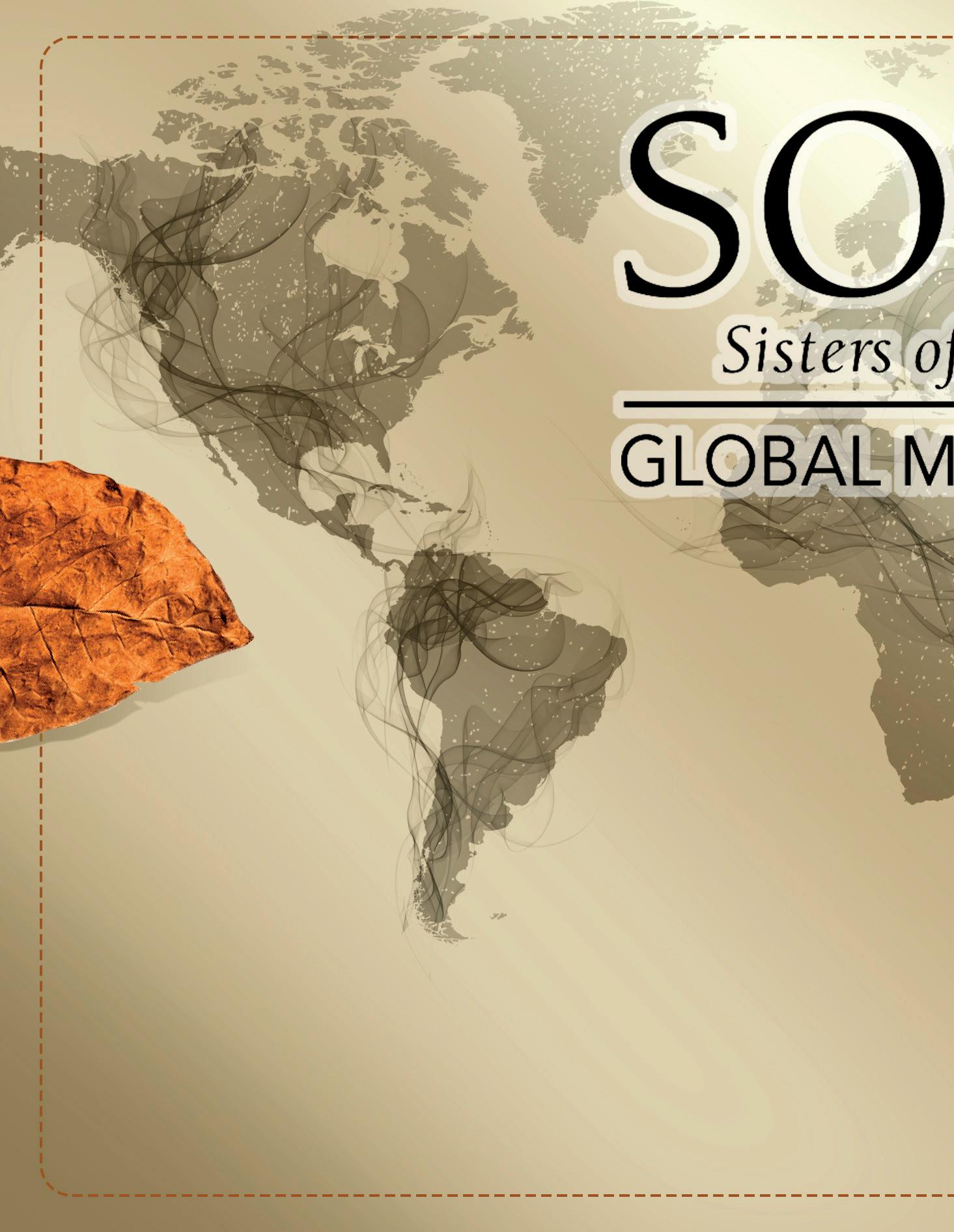
to create cigar communities, support their entrepreneurial spirit and –in collaboration with men– develop a better environment for aficionados.
The Advisory Council and Management Team work tirelessly to lead the organization toward success, promoting projects such as the Maestro School of Cigar Sommelier Tobacconist, in collaboration with the Tobacco University; the Women Friendly Cigar Lounge Certification, in support of small businesswomen, and Global Round Tables to facilitate discussion and equal dialogue between aficionados.
Also, the Global Movement Cigar Speakeasy online tutoring with Detra Denise, a space to enjoy smoking cigars and dispel worries, as well as Scientific Research in Social Psychology with Panteion University, on the Contribution of Cigars in Social Health, based on the senses, the emotions, the connection, bonding, self-identification and its social value.

Educate people of all genders about the history, culture and craftsmanship of cigar making, promoting awareness of the benefits to health and enjoyment of smoking, will allow future generations to preserve the tobacco industry, if we encourage them same sense of community.
Be part of the Movement!
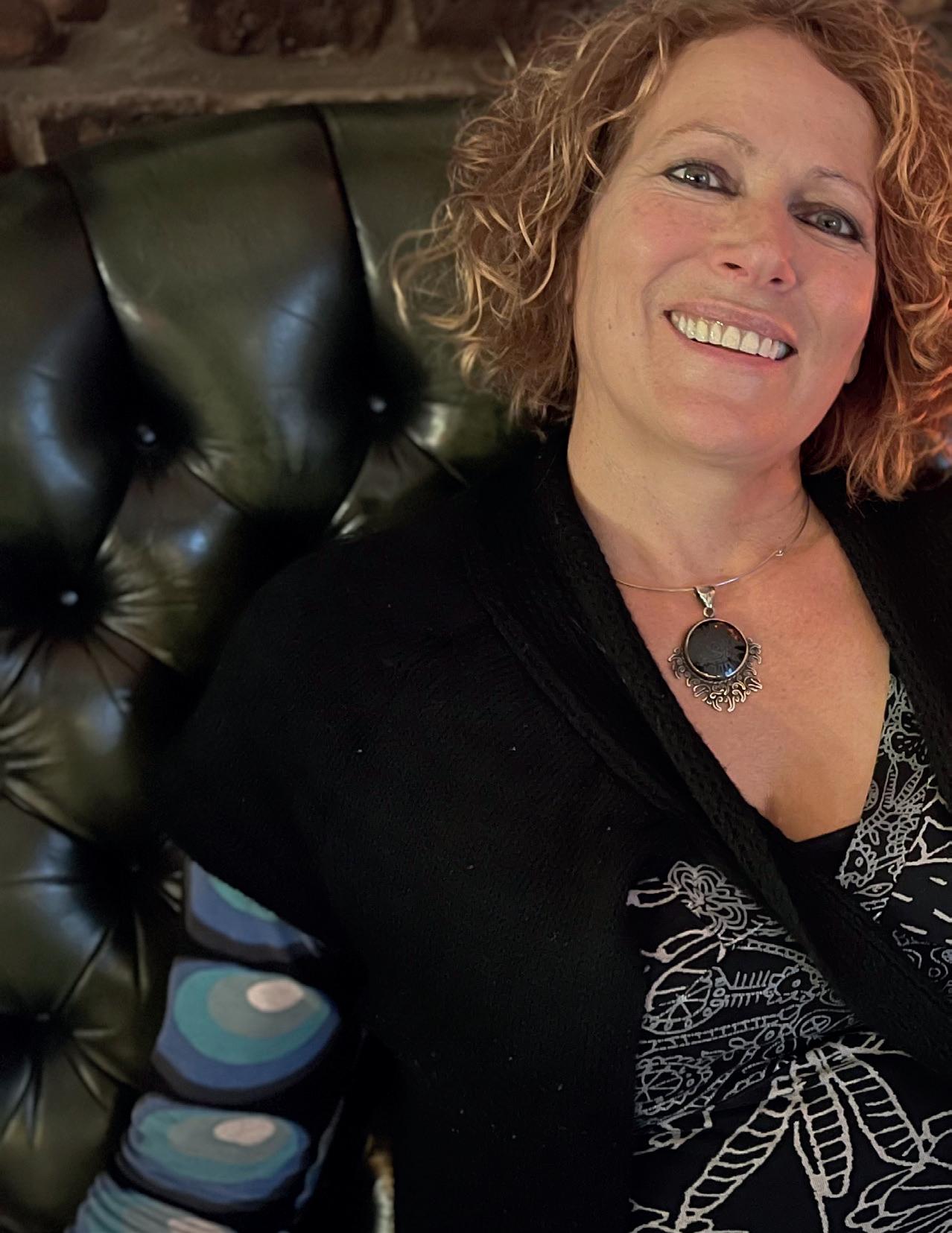

Ana Galana and her Cuba-Germany connection
Born in the south of Germany, surrounded by the extraordinary landscapes of the Black Forest on the border with Switzerland, Annette Meisl, also known as Ana Galana, discovered her artistic gifts for writing and music from an early age, when she learned to play the violin and, at the age of ten, she published an article in a magazine specialized in horses.
After completing secondary education and overcoming her parent’s separation, Annette moved to the south of France, where she began her international artistic adventure with a brief stint in medicine; practice that bore no fruit.
France was followed by Madrid, Spain, a city where she arrived without speaking the language and with an original itinerary of five days that turned into three years playing the violin in the streets and participating in films, musical groups and different projects, until she became in the administrator of a small theater called Damajuana
During the eighties, a period of the post-Franco cultural movement called La Movida, she coincided with figures of the stature of Carlos Saura, Paco Rabal and the filmmaker Pedro Almodóvar. Then, after becoming an artist manager, she met her husband, a Spanish singer and guitarist, with whom she returned to Germany and formed a tango duo that enjoyed success, performing throughout the country.
On this tour she met the Cuban group Vieja Trova Santiaguera: “They had five members and together they were 400 years old!” she remembers jokingly. Annette’s first trip to Cuba was at the initiative of this group of experienced musicians, who showed her the World of Tobacco, from planting the plant to making cigars.
 Annette Meisl, also known as Ana Galana.
Annette Meisl, also known as Ana Galana.
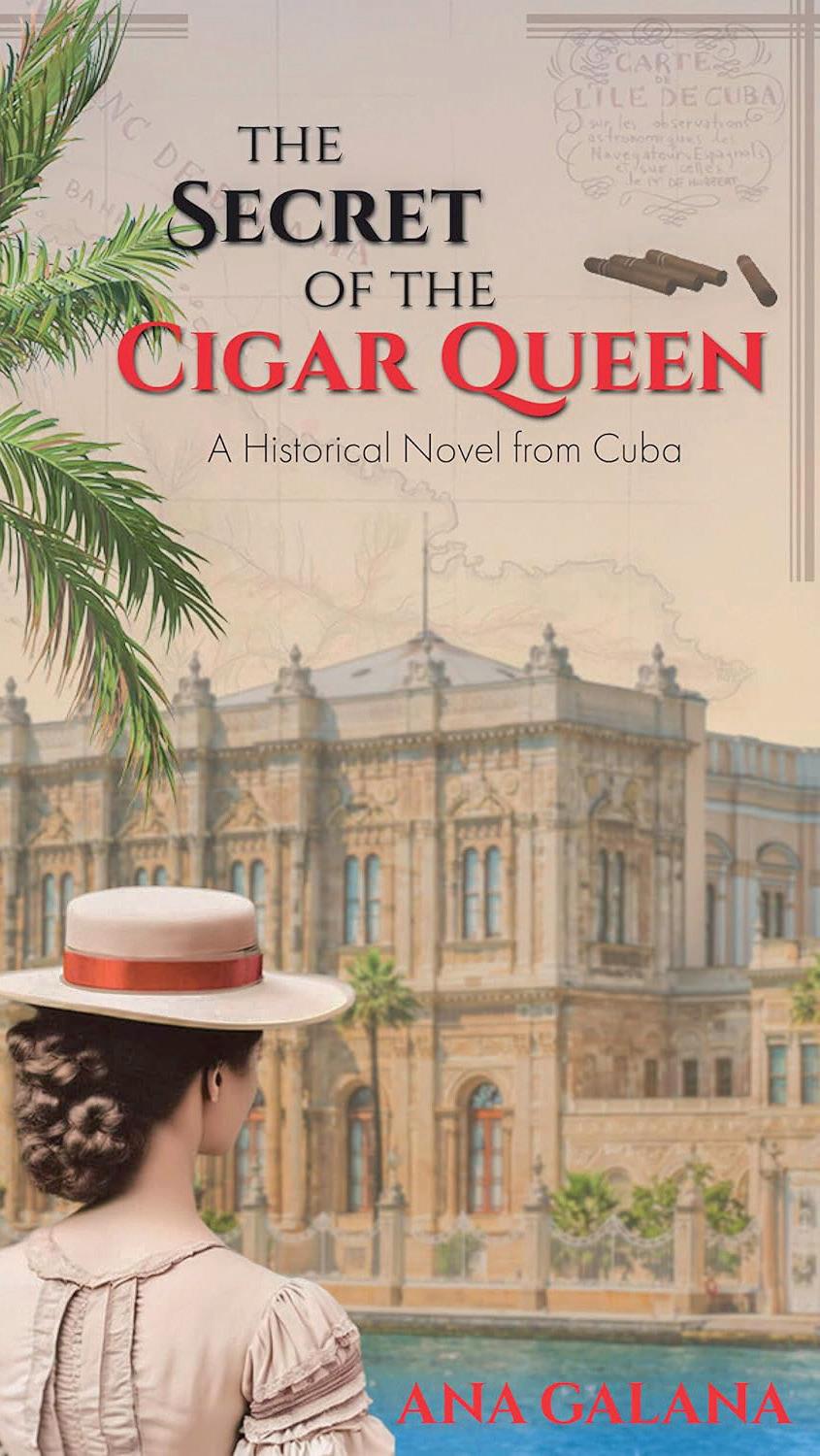
“All of this touched my heart... I started bringing musical groups to Europe, but since cigar making fascinated me, I also organized cigar rolling events with different cigar rollers. I would never have imagined that tobacco would develop such power over me. A shaman from Colombia told me the other day: ‘tobacco selects its people.’ And it did it with me,” she says.
Five years after that first trip to Cuba, Annette created her own brand of cigars: La Galana; Ten years later she opened her tobacco shop and Lounge in Cologne, Germany, and after two decades she published a historical novel on the subject.
Her first idea for the name of the brand was La Gala, after the name of his Representation Agency and inspired by Gala Dalí, whom she considers an example to follow for her role as muse and representative of the artistic genius Salvador Dalí. “A woman crazy enough to deal with a genius, but smart enough to turn that genius into a lot of money and international success,” she thinks.
But since La Gala was already a registered brand, she took a second option: La Galana. Annette, a lover of the Spanish language and culture, found potential in this word as a reflection of an elegant, good-looking woman: “It was exciting to give such a feminine name to a product that would be consumed mainly by men, although I still want to convince many more women to be part of the art of cigar smoking and at the same time be proud of their femininity, independence and wisdom of life.”
As if sent by the magic that the Shaman referred to, one day a great aunt whom she did not know appeared in her life. The woman gave her a suitcase full of documents and letters from his ancestors; texts in which she discovered stories that inspired the plot of The Secret of the Cigar Queen, her historical novel signed under the pseudonym Ana Galana.
In it she tells the story of Anna Mehringer, a young woman from Bremen, Germany, daughter of a family of cigar rollers who escapes from her home and after many adventures arrives at Cuba, where she is saved by the German cigar producer Hoffmann, but falls in love with Luca, a former slave.
The story takes place during Cuba’s first war of independence (1868-1878), and addresses topics such as slavery and colonialism, as well as the importance of the tobacco industry in Germany in those years. A tradition that no longer exists as such, but regains strength with La Galana. “I learned to make cigars from a master Cuban roller named Silvia, and then in different factories at Estelí, Nicaragua, and Danlí, Honduras,” she explains.
Annette says that her book is dedicated to women who live their dreams, especially in the World of Cigars, where it is necessary to increase the number of aficionadas, brand owners, directors, etc. A personal goal that coincides with the mission of the SOTL Global Movement, to which many contribute their knowledge, culture and passion.
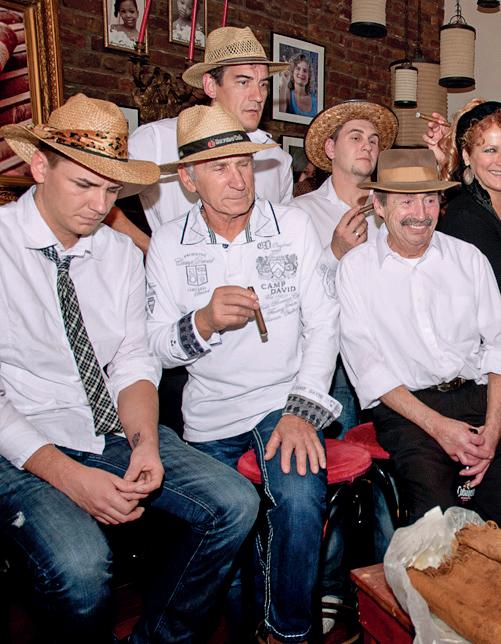
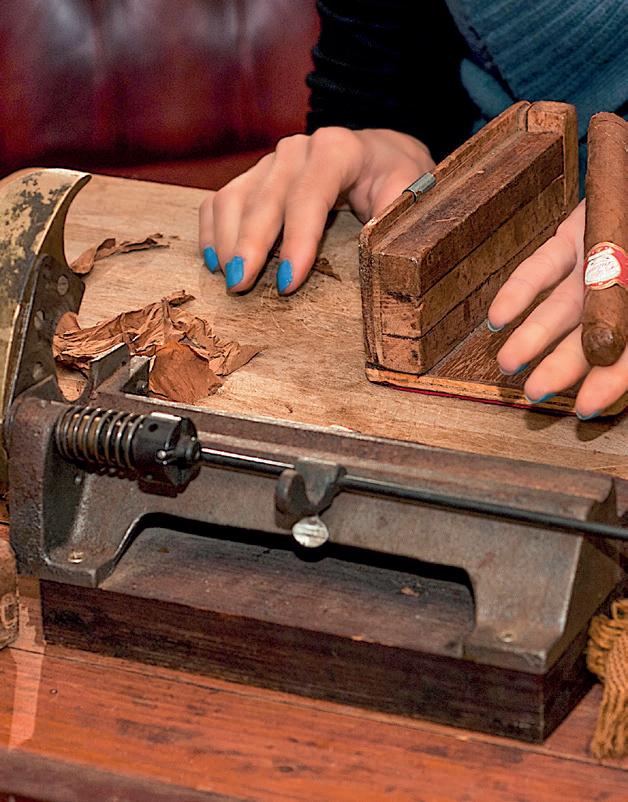 Seminar at La Galana Cigar Lounge.
Seminar at La Galana Cigar Lounge.
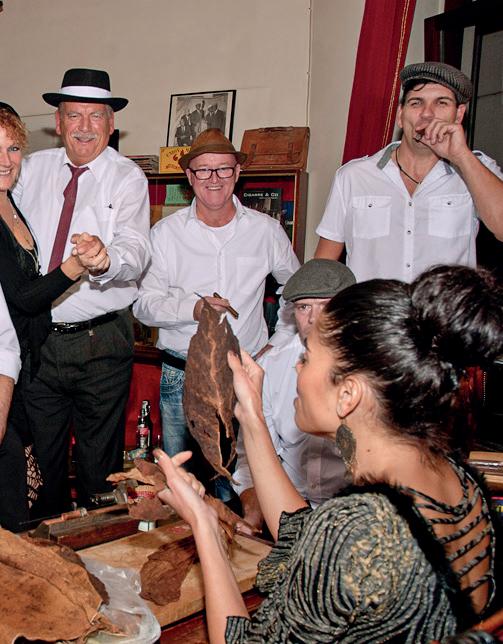

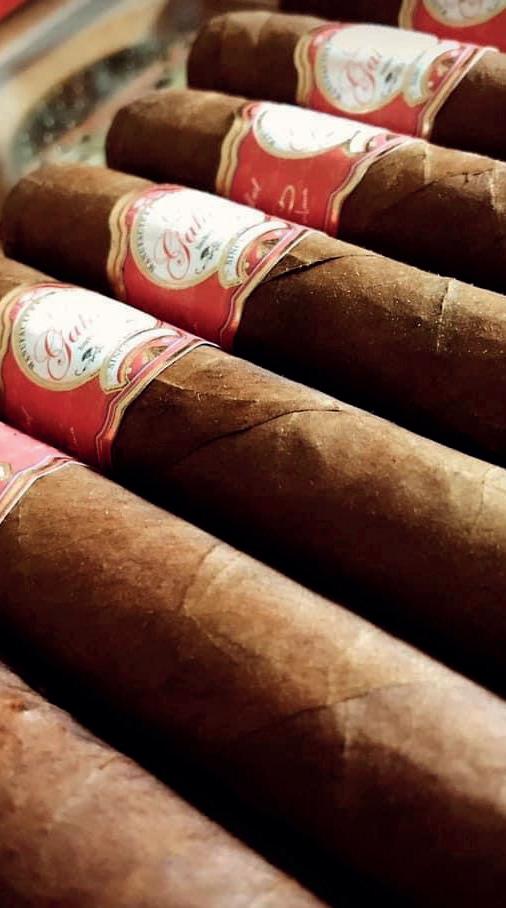
The culture around cigars is so special, she adds, that it invites group collaboration to create an increasingly broader scenario. “And I’m sure all these men will also be very happy to welcome girl power!”
Regarding her music, she says that she is inspired by the style of the 1920s, a time of incredible women who, like Marlene Dietrich, began smoking cigarettes as a symbol of emancipation, against the deeply rooted belief that a lady shouldn’t smoke. “Let’s forget that and let’s smoke, have fun, meet wonderful people and enjoy special moments in these times in which we always live worried.” And she adds, jokingly, that it is time to create a new symbol, a bigger one: a cigar.
At the moment La Galana is only sold in Germany. To learn more about the brand visit the website https://lagalana.de and regarding Annette, as an author and singer, annettemeisl.com (Spanish) and annette-meisl.de (German and English).
You can also purchase the novel The Secret of the Cigar Queen in Spanish https://shorturl.at/ghiBE and in English https://shorturl.at/amH15
PHOTOS BY: DARÍO SCANDURA.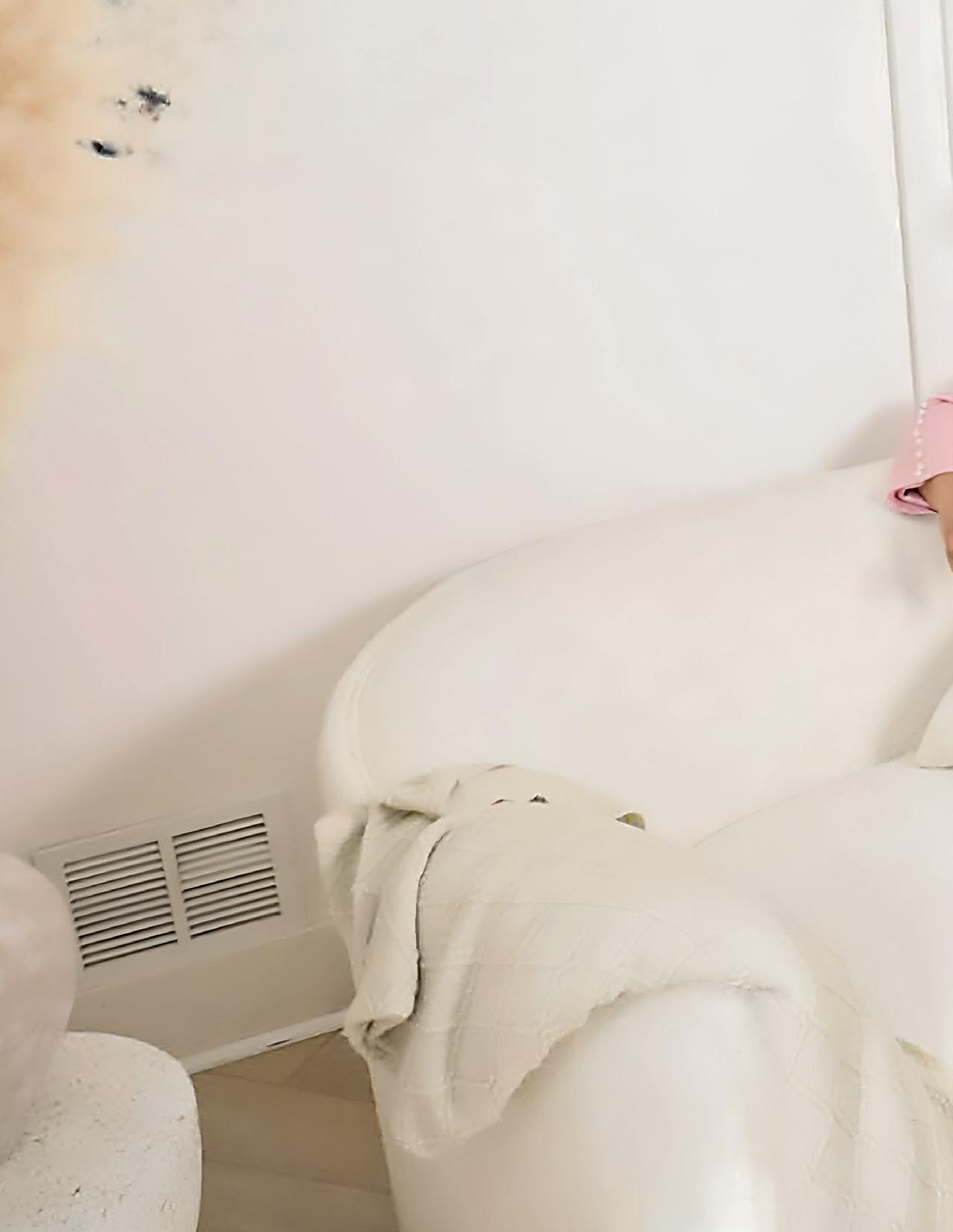

CEO of Morgan’s Xpress Transportation Inc., a ground transportation company, Christine Morgan is passionate about travel and tobacco; tastes that at some point in her life intertwined to create Lips, Sticks & Fingertips Mobile Cigar Lounge: an opportunity to enjoy a cigar and share her hobby, without leaving the roads.
Christine Morgan was born and raised in Detroit, Michigan, United States, a city where she learned about resilience, adaptability, community engagement, and the importance of revitalization and innovation.
In addition, she embraced the value of perseverance, with the idea of accepting change and the goal of achieving positive transformations based on joint work. That is, the lessons that can inspire people to overcome obstacles and contribute to personal growth within the cigar community.
The history of Lips, Sticks & Fingertips Mobile Cigar Lounge began thanks to Christine’s love for tobacco, influenced by lawyers and doctors who appeared within her work circle. Realizing that the cigar lifestyle was too expensive –by her standards at that time –she did some market research and decided to create a Cigar Lounge.
As an idea it worked, but she was not willing to give up her road trips. So the venture took a turn and was mounted on four wheels. “Establishing a mobile Cigar Lounge gave me the best of both worlds,” she says.


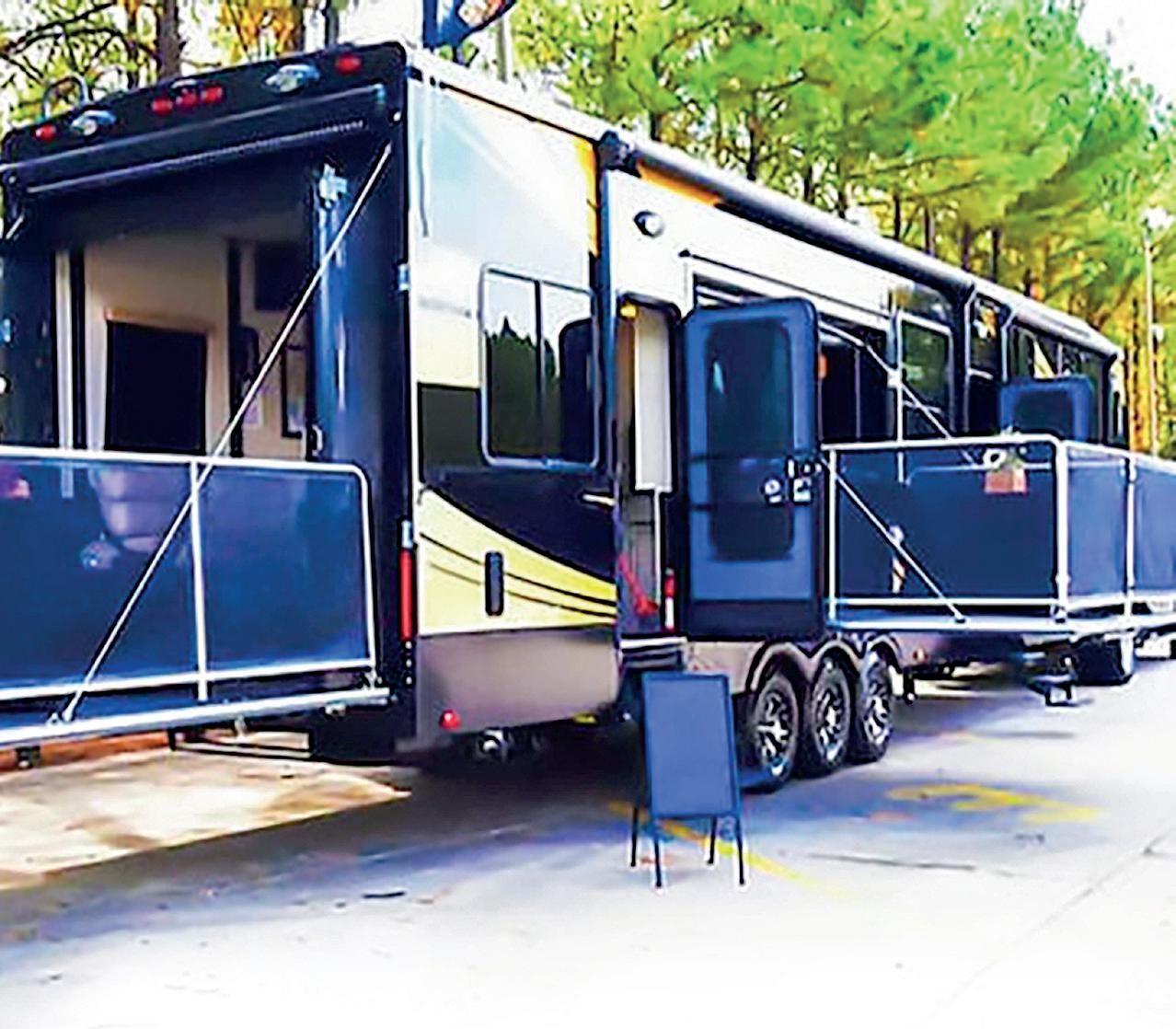

Traveling the country and the world did not make her forget what she learned in her hometown. So now, with greater possibilities, Christine promotes and participates in campaigns to collect coats and toys, and in raising awareness about early detection of breast cancer: “Growing up in poverty is the force behind my community initiatives. I love having a positive impact on our communities and helping those in need. Hopefully my contributions will help raise awareness and spread kindness and joy.”
Proof of this is her affiliation to the Big Brothers and Big Sisters (BBBS) club, in which she provides tutoring to boys and girls with social problems, whom she encourages towards better coexistence and development.
“It is amazing to see such a positive impact, as it happened in the life of my apprentice (his younger sister). Watching her change from a shy nine-year-old to joining the Navy and now wanting to give back by becoming a mentor is truly inspiring. It gives me comfort to know that my guidance and support motivated her to help other girls, continue the cycle of giving, and makes a difference in their lives.”

As a generous person, Christine advises women who strive to build strong relationships, and forms networks based on authenticity, communication, and active and empathetic listening. With these attitudes, people stay true to themselves and their genuine personality emerges: “We all appreciate honesty. It is easier to trust and connect with someone sincere.”

She believes that by participating with the SOTL Global Movement, her influence in other areas can help close gaps in the cigar industry and bring experiences, from other countries and cultures, to a central platform.

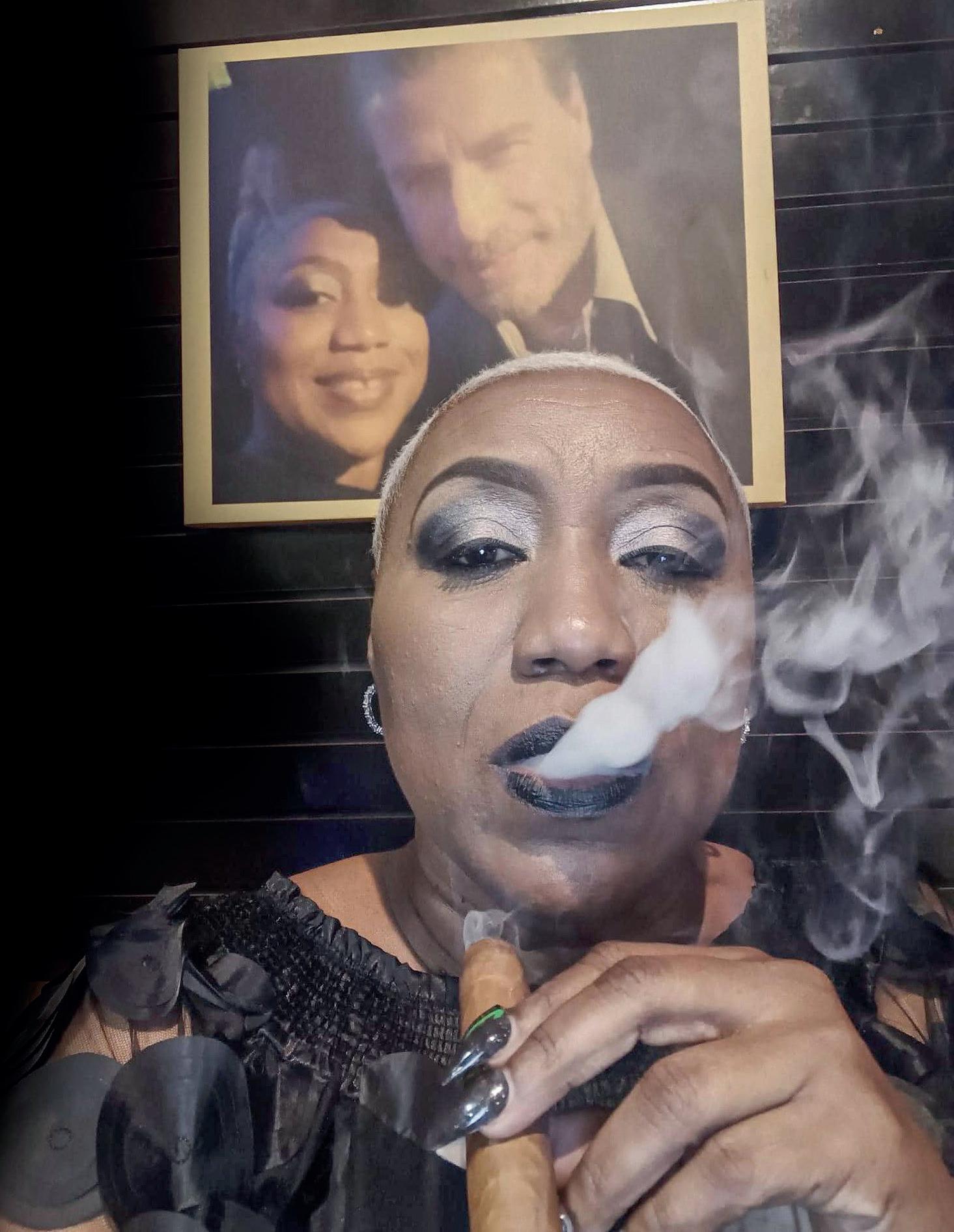
The city of Dallas hosted the recent Texas Rum Fest & SGM Vip Event, an example of the strong sense of camaraderie within the SOTL Global Movement, during a meeting that highlighted the appreciation of cigars, rum and community, with emphasis in inclusion and friendship.
Roz Stafford-Grady, owner of The Smoking Jacket Cigar Lounge, the first African American woman-owned cigar lounge in Texas, was instrumental in creating a welcoming atmosphere; perfect setting for this coexistence.





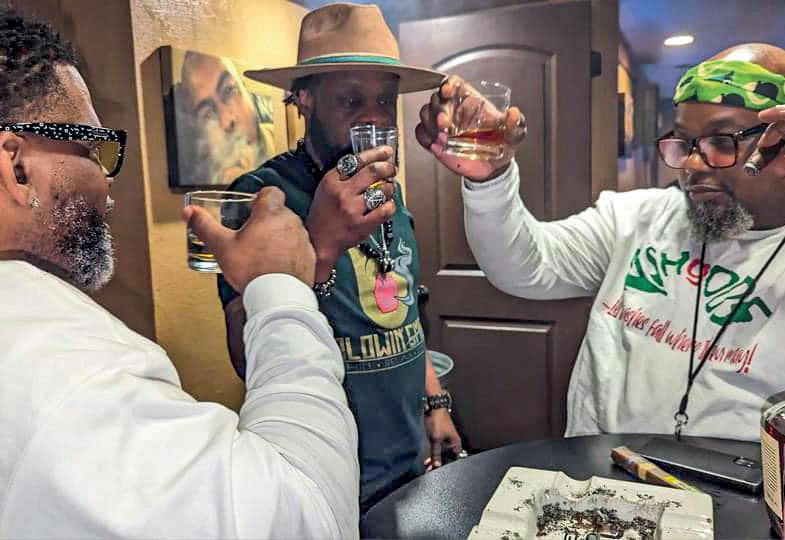

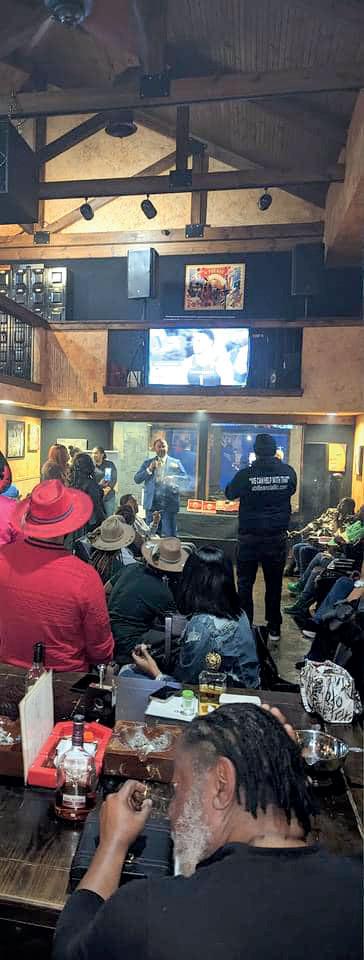
Key members of the Movement including Maya Queen, Michelle Austin and MsToya Goody shared their passion for cigars and empowerment, and spoke about the importance of networking and supporting women in the industry. Special guests Keya McClain and Ayoke Milan praised the event’s inclusive and supportive atmosphere, highlighting Roz’s leadership and Dr. Anastasia Posmiadi’s vision.
The efforts of the members of the Dallas SmokeFest organizing committee, represented by its executive director, Kimoni Jackson, were also recognized.
Other participants, such as Tommy, from Cu’Noma Cigar Lounge; SherJuan Mims, of Heart of a Lion Cigars, and Nikki Morris, of Absolute Cigars, welcomed the celebration of an event for women in the industry and praised the collaboration between the SOTL Global Movement and the Festival, which allows for the creation of networks and business initiatives, as well as supporting the community.
Federico J. Hernández, founder of The Rum Lab, had a prominent role in organizing the festival and celebrating this event, in which Karen Berger, from Karen Berger Cigars, added a special touch to the rum tasting experience, during a coexistence that showed –in general terms– unity, diversity and shared passions.
